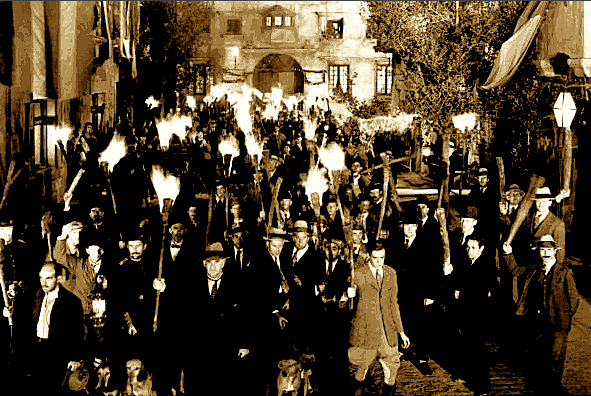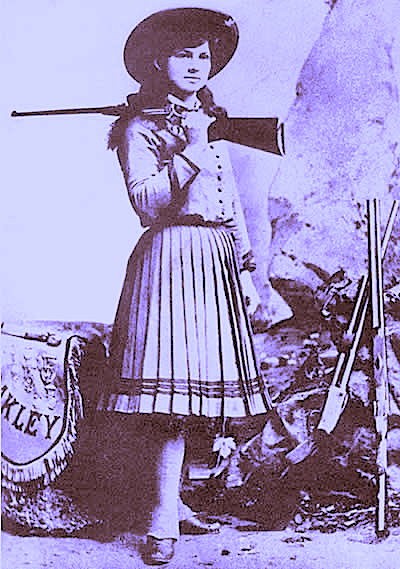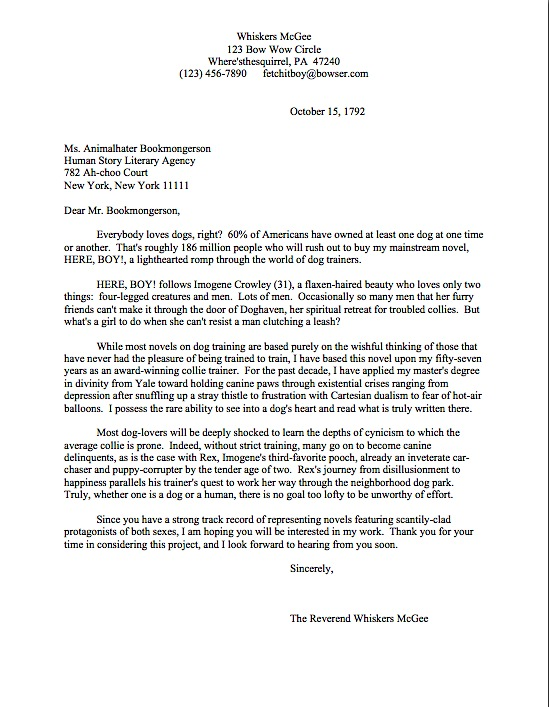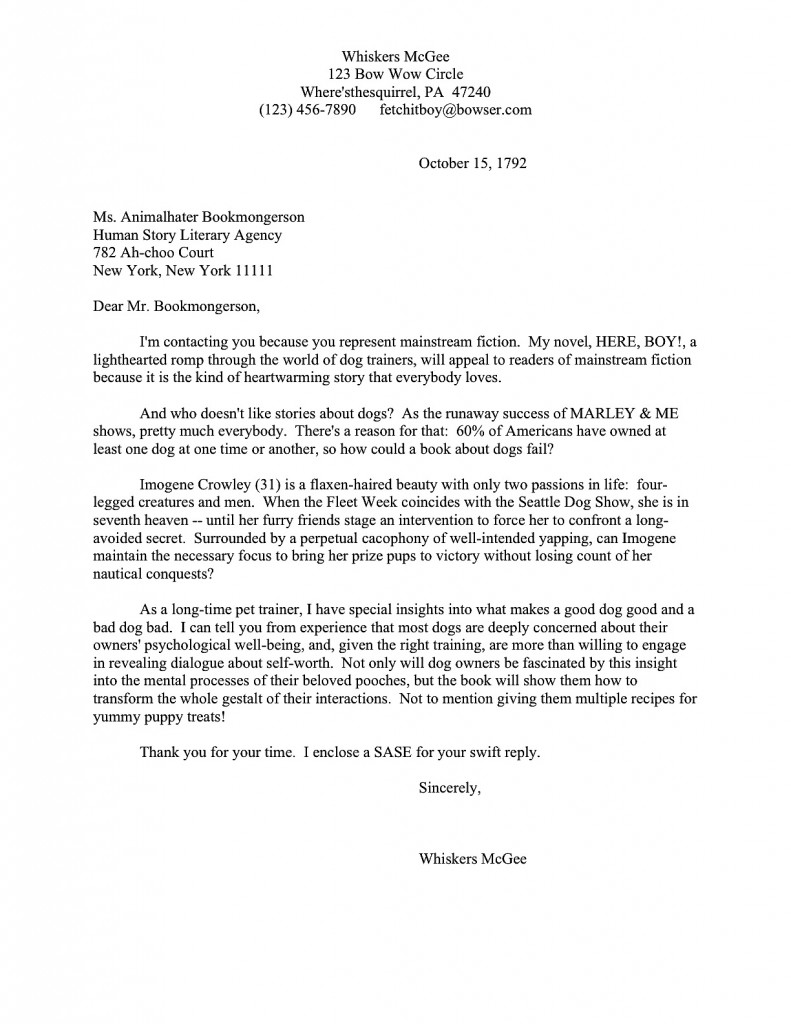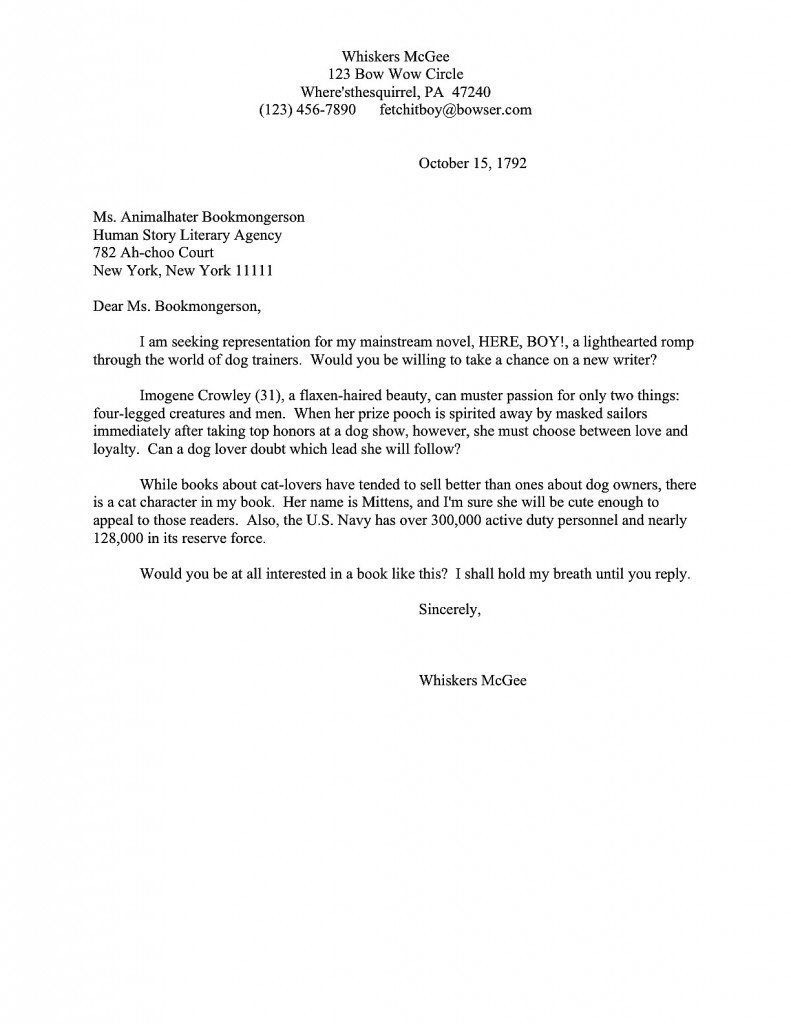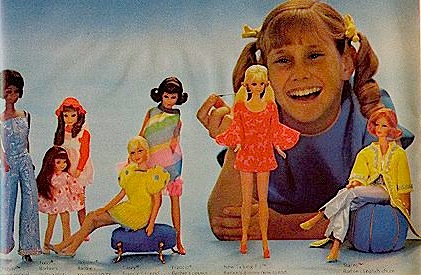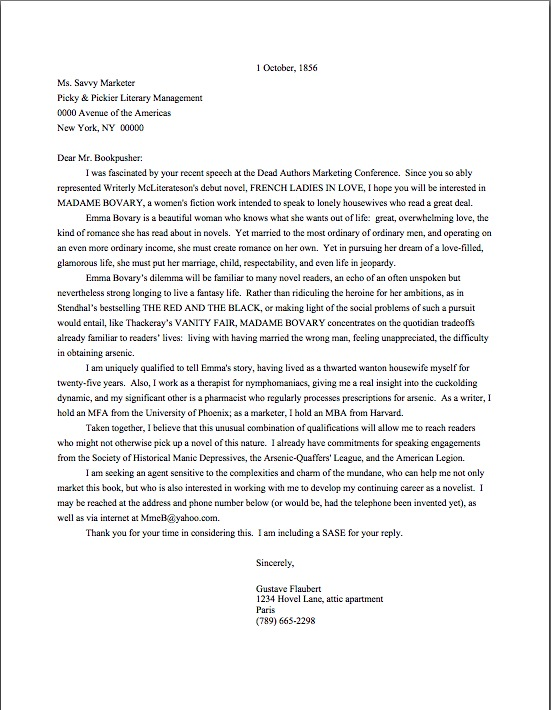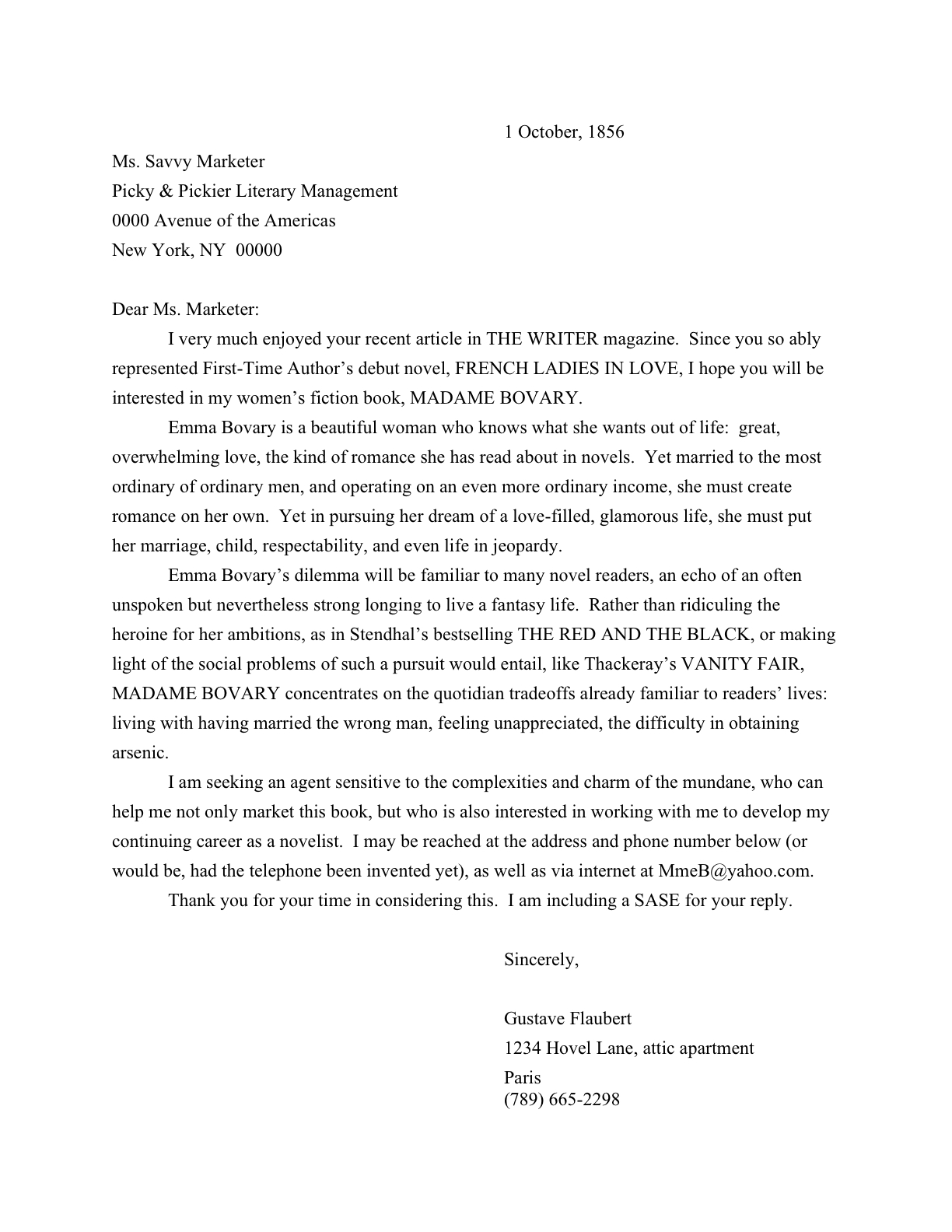No, you’re not seeing things, campers: this is indeed the last Queryfest post. It’s been a long time coming, as the song would have it, and we’ve wandered down a few side paths along the way, but this is, as they say, it.
Yes, I’m relieved, too. Of all the unpleasant tasks that fall to the lot of the aspiring writer, composing query letters is perhaps the most universally-resented necessity. (Synopsis-writing would be first by a mile, but not all aspiring writers are aware that the more successful they are in getting published, the more often they will to have to churn out synopses.) Not only do most writers of book-length works feel, justifiably, that if their talents leaned in the direction of one-page documents, they would have gone in for writing brief epistolary novels, if not short-form poetry — they believe, and not entirely unreasonably, that the ability to write an engaging letter is not the best proof that one can write a novel. Or a memoir. Or a book proposal.
While that may well be true, there’s a pretty good reason that agencies expect anyone who intends to work with them to learn how to write a professional-sounding query: it’s quite an efficient means of assuring that the writers they pick up will have gained at least a minimal working knowledge of publishing. Think about it: as we have seen throughout this series, in order to whip up a solid query letter, a writer must figure out her book’s category, do a bit of research on what agents represent that type of book, come up with a 30-second pitch of the book’s premise or argument (try timing a dramatic reading of the descriptive paragraph sometime), ponder the book’s selling points and/or one’s own platform, and include a SASE.
Honestly, would you have known to do any of that just because you had the inspiration and persistence to write a book? Indirectly, the agent of your dreams has prompted you to take a crash course in many of the skills you will need to become a happily-published author.
Oh, you thought I had lingered on the constituent parts of the query for months on end because letter-writing fascinated me?
To demonstrate just how far we have all come over the course of Queryfest, here is one final example, written by yet another brave, generous, and naturally creative member of the Author! Author! community, A. Verage Reader. I was delighted to see A’s query pop into my inbox: not only does her book sound like a real page-turner, but she has also, like so many well-meaning, talented aspiring writers across the globe, submitted a query that presents our hypothetical agent, Hawkeye McAgentson of Picky & Pickier Literary Management, with a quandary: should she base her decision to request pages upon the story A is telling in her query, or upon how she presents it and herself?
And already, the intrepid few who have been following this series from the very beginning fling your hands into the air. Yes, thoughtful, sharp-eyed, and faithful readers? “But Anne,” you point out, “realistically, would Hawkeye be the one making this decision? Yes, her staff might pass the most successful queries on to her, but Hawkeye is usually busy selling her clients’ books to read every query personally, isn’t she? So wouldn’t the first-round weeding out be performed by our old pal and nemesis, Millicent the agency screener?”
Quite right, Queryfest stalwarts, and since this often comes as a gigantic surprise to first-time queriers, how glad I am that you reiterated it. Contrary to popular opinion, most well-established agents simply do not have time to read the thousands of queries they receive, much less to narrow down those thousands to the three or four manuscripts they can reasonably take on per year. That’s why agencies employ Millicents, to reject the overwhelming majority of queries and submissions. That way, the agent can concentrate upon reading the tiny percentage of manuscripts and book proposals that Millie deems well-written, written well for the target audience (not always the same thing), market-ready, something the market is ready for (see last parenthesis), and a storyline or argument likely to interest Hawkeye.
I know, I know: having to make it past Millicent’s notoriously nit-picky scrutiny can seem like an insurmountable barrier. Most queriers would prefer that Hawkeye read every single query and submission herself — or, better still, just allowed potential clients to send the first 50 pages instead of a query. Honestly, though, when yours is one of the dozen or so on Hawkeye’s desk, you’ll be deeply grateful to Millicent for freeing up her boss’ schedule enough to read your work closely.
In that spirit, let’s slip into Millicent’s reading glasses and take a gander at A’s query. If you could request manuscripts from only a couple of the several hundred queriers who contacted Hawkeye this week, would you say yes to this one? (As always, if you are having trouble seeing the details, try holding down the COMMAND key and pressing + to enlarge the image.)
Actually, that was sort of a trick question, wasn’t it? Naturally, Millicent could not have said yes to this query: I don’t employ a Millicent, for the exceedingly simple reason that I am not an agent. I am a freelance editor. And even if I were an agent, I would expect my Millicent to be aware that the proper formal salutation for a lady with a Ph.D. is Dear Dr. Mini.
Actually, the only people I make call me Dr. Mini are medical doctors. It bugs them to such an astonishing degree that as both a trained social scientist and a writer of comedy on serious issues, I feel an intellectual duty to try to find out why.
So had A. sent me this query, I would not have been in a position to give her the answer she wanted. By the terms of this contest, though, she did not send it to me — she sent it to Hawkeye. While the address (or, in this case, non-address) at the top clearly indicates that she intended to mail it to me.
This, I’m afraid, is usually an instant-rejection offense — and far more common than any of us would like to think. Oh, it’s a completely understandable faux pas: A. was probably printing out several queries at once, and the one for this Mini person accidentally ended up in the envelope addressed to Picky & Pickier. Happens all the time. Yet you can hardly blame Hawkeye’s Millicent from taking umbrage at being expected to read a paragraph about how much A. admires somebody else’s blog.
Not that somebody else isn’t flattered, of course. Heaven help A., though, if Hawkeye happens also to blog.
I’m harping on this not only because it is one of the most common (and least-often acknowledged) reasons queries get rejected, but also because about a third of the brave, generous souls who volunteered their query letters for scrutiny here stumbled into precisely the same trap. So, reliably, do between a quarter and a third of the entrants of any writing contest: the rules call for one thing, and the entrant does something else. Care to guess what that means for the contest entries in question?
Uh-huh: “Next!”
Actually, the response should be closer to, “Hey, thank you for saving me some time!” In practice, queries, submissions, and entries that do not conform to expectations, especially when the recipient has taken the time to list those rules for all to see, are a positive boon to overworked professional readers. Millicent, her Aunt Mehitabel, the veteran contest judge, and Maury, their cousin who works as an editorial assistant in a small publishing house, can simply reject all of those documents at first glance. That takes much, much less time than reading them in their entirety — and leaves extra time in their respective days to devote to the queries, submissions, and entries that did follow the rules.
In case I’m being too subtle here: read any submission guidelines carefully before you seal that envelope or hit SEND. Assuming that you know what they call for — or, as many aspiring writers presume, wrongly, that every agency or contest out there must necessarily want to see precisely the same things — can be exceedingly costly. Invest the time in double-checking.
Do I hear some tender-hearted souls out there sighing? Yes, I feel sad for all of the good writers with fine books who get rejected on the basis of simple mix-ups, too. Tell you what: let’s pretend that I gave A. the pep talk in that last paragraph before she sent in her query. Let’s further assume that Hawkeye actually does write a blog aimed at helping potential clients, because, honestly, it’s less work for me that way.
Here’s what the query might have looked like in that alternate reality. Again, if you were Millicent, how would you respond?
Do I sense some hesitation out there? “Gee, Anne, I want to read this query with the attention it deserves, but having read so many similar letters throughout the course of Queryfest, I’m afraid I find the presentation here a trifle distracting. Why, for instance, is the date located in the bottom margin, rather than the top, where it belongs? Why, too, is it in a different font? Speaking of fonts, this doesn’t look like 12-point in either Times New Roman or Courier, the standard fonts for the U.S. publishing world. If I had to take a wild guess, I would say it was Calibri 11 point. While I am nit-picking about format, why are the closing and contact information tabbed to 2.5″, rather than halfway across the page? And shouldn’t A. have left room for a signature?”
Congratulations, hesitators: you have begun looking at pages like a screener. Yes, the formatting is off here; the type is indeed too small for any writing intended for submission to an agency. While neither will necessarily present a reading problem — the content of the letter is perfectly clear here, right? — both would raise some reasonable concerns about whether the manuscript being queried would be in standard format. Millicent would have some legitimate reason to expect that it wouldn’t.
And why is that a problem, long-time readers? Chant it with me now: even the most talented writer unfamiliar with the norms of publishing will be more time-consuming for an agent to represent than a similarly-talented writer who has done his homework. The single quickest way for Millicent to judge this is to check how closely the submission adheres to standard format for book manuscripts.
So, again, Millicent may have a reason to say, “Thank you for saving me some time!” That’s sad, because an easily-fixed set of presentation problems have prevented a reading of A’s query on its content.
On the bright side, the choice of typeface was probably not what put Millicent off this version. While not adhering to the industry-standard fonts is seldom a deal-breaker in a query (as it can be in a submission), it’s undeniably true that to the pros, a query in those fonts just seems more professional than one that isn’t.
Don’t not sure why? Okay, here’s A’s query again, with nothing changed but what the hesitating many pointed out. If you were Millicent, would you feel more confident that the writer of this version would be able to send you a manuscript in standard format, or the writer of the original?
Ah, that looks more familiar, doesn’t it? But now that the non-standard formatting no longer distracts your eye, Millicent-of-the-moment, do you notice anything else? Here’s a hint: the overwhelming majority of queries exhibit this problem to a greater or lesser extent.
If, after you perused A’s query carefully, you flung your hand into the air and cried, “There are quite a few typos here — missing commas, misspelled words, and a misused semicolon. Oh, hey, there’s also a dropped word or two. And is it me, but is there an extra space in the non-standard sign-off?” give yourself a gold star for the day. Millicent is constantly astonished at how many queries are apparent neither spell-checked nor proofread.
And no, in response to what half of you just thought very loudly indeed, performing the former does not obviate the necessity of performing the latter. Spell-checkers are not infallible; neither are grammar-checkers. (For some reason that surpasses human understanding, mine is constantly urging me to use the wrong form of there, their, and they’re and telling me that reflexive pronoun use is always wrong.) There is, I’m afraid, just no substitute for good, old-fashioned proofreading.
Why? Well, now that we know that conclusion-jumping is part of Millie’s job, what do you think she might reasonably assume about a manuscript if the query for it contains misspellings and typos?
Yep. And since an unproofed submission is likely to get rejected, anyway…
Given the grave importance of getting the small details right, how does one maximize the probability of catching small problems before sending off that query, campers? That’s right: since every syllable an aspiring writer submits to an agency is a writing sample, it’s worth your while to re-read your query IN HARD COPY, IN ITS ENTIRETY, and OUT LOUD. It’s simply the easiest way to catch typos, spacing problems, and missing words.
Yes, your neighbors may think you’re a little strange, but hey, no one said the path to publication was easy.
Before I show you A’s query again with that array of minuscule problems corrected, there’s another element in that last draft that might raise Millicent’s delicate eyebrows, as well as her doubts about the manuscript’s being in standard format. Any guesses? There’s another gold star at stake.
If you leapt to your feet and cried, “Why, I had not thought about it on earlier read-throughs, but the numbers under 100 are presented in this query as numbers. In standard format for book manuscripts, those numbers would be written out in full: eighteen, not 18,” help yourself to a gold star out of petty cash. As counterintuitive as it may seem, queries are frequently judged as though they were manuscripts; not doubling a dash would be a red flag, too.
Yes, really. Millie’s boss is not going to have time to proofread her clients’ work before submitting it to a publishing house.
So let’s take this query seriously as a writing sample and buff away those little problems, shall we? While we’re at it, let’s change that closing to something more traditional for a formal letter. Do you want to ask for a partial now, Millicent?
Stronger, but I have to say, this version still feels a bit minimal to me. Not merely because there’s quite a bit of room left on the page — a temptation to add plot elements that most queriers would not be able to resist — but because the wording in the opening paragraph and the target audience paragraph are a little, well, ungraceful. Almost as if providing this information were not a compositional pleasure, but an irksome requirement.
Imagine that. Why, an innocent bystander might almost think that writing a query is just an annoying hoop through which aspiring writers have to leap in order to gain a fair reading of their manuscripts.
Surprisingly often, queries make that pervasive attitude quite apparent — and that’s never helpful to a book’s chances. Even if the querier in question happens to phrase distaste for the entire process beautifully, it’s not Millie’s fault that the system is set up this way, is it?
Besides, a flat telling does not show off anyone’s writing to its best advantage. That is, alas, the case here: the writing in those informational paragraphs would not match the tone or writing style of the book description. Based on them alone, Millicent would have a hard time figuring out what A’s writing style was.
Another problem: the importation of generic elements. As we have discussed many times throughout Queryfest (although, in fairness, after A. sent in her query for critique), Millicent sees that line about the word count in about half of the queries that cross her desk: apparently, it’s in quite a few boilerplates floating around out there. That doesn’t mean it is well-written, or that including will, as so many new queriers evidently believe, make your letter sound professional. At this point in querying history, it just sounds like someone else’s writing — and not very interestingly-phrased writing at that.
Why is that problematic? Pull out your hymnals and sing along, Queryfesters: contrary to popular opinion amongst queriers, a query is a writing sample. Since stock phrases are, by definition, not original writing, it’s a better use of page space to write your letter from scratch.
At the risk of repeating myself, I always advise against including word count in a query unless an agency’s submission guidelines specifically ask for it. Fortunately, A’s word count is well within the expected range for her chosen book category, but being much under 60,000 words (estimated at 250 words/page in Times New Roman x the number of pages in the manuscript) or over 100,000 provides Millicent with, you guessed it, a legitimate reason to reject the query.
“Why, thank you!” she exclaims. Or she should.
Since a query is in fact a writing sample, I hesitate to rework the phraseology in order to encourage Millicent to spend more time with this letter: after all, she wants to know what A. sounds like on the page, not me. Far be it from me, too, to compound the already widespread problem of generic query phrasing by adding a new prototype to the mix.
Were I A., however, I might express these sentiments rather differently. A great start: being more specific about why this book is right for Hawkeye. This is something you might like to represent does, you must admit, does beg the question, “Okay, why?” (And what, Millicent wonders, prevented A. from querying her boss before?)
And a forest of hands sprouts in the ether. Yes? “You’ve lost me, Anne,” weary queriers the world over protest. “I get that it’s worth my while to personalize each query slightly, but A. has already done that: she brought up Hawkeye’s blog. Since she’s a long-time reader, does she honestly need to paraphrase the agent’s expressed protagonist preferences, too?”
It’s not strictly necessary, perhaps, but why pass up the opportunity to help Millicent gain a sense of what’s special about this storyline — or a dandy opportunity to say, essentially, “Hey, Hawkeye, I’ve not only read your blog — I have absorbed what you have been saying. Here I am, demonstrating that. Wouldn’t I be good at incorporating your feedback as my client?”
Sound like a tall order for a non-obsequious first paragraph? Not at all: the key lies in specificity, combined with a professional tone. And speaking of creating a professional impression, since the YA market is aimed at readers from 13 to 17, is it really necessary for A. to point out that her book is geared toward that age range?
Seems less forced now, doesn’t it? In this version, the reader’s focus is right where it should be: on the story.
So let’s talk about how A. might render that more appealing to everyone’s favorite screener. To get us started, let’s take a few steps back. Remember a few minutes ago, when I mentioned the desirability of reading one’s query IN HARD COPY, IN ITS ENTIRETY, and OUT LOUD before sending it off? Give that a try now, please.
It’s not always clear to whom they refers, is it? That’s quite common in book description paragraphs, I’m sorry to report: because queriers are so eager to cram as much of the storyline as possible into the letter, they frequently include so many plot twists and introduce so many characters that Millicent can’t follow what’s going on.
That’s a real shame here: A. has worked in some delightfully unexpected specifics into this description, but they are getting lost. While that line about the father’s body and the mother’s mind is quite nice, the book description leaves us guessing why going to Poland will remedy the situation; indeed, the phrasing of that third sentence could be interpreted to mean that the mother is left with only one choice, not Meghan. Why Poland, and not, say, Belgium? While we are speculating, what is a Holy Apprentice, and why is it capitalized?
I have no idea; I’m merely asking what Millicent would. Not having read the manuscript in question — which sounds awfully darned exciting, I would only be guessing on these points. So please forgive me, A., if I get the plot wrong as I polish out the question-raisers.
I’m going to begin by highlighting those thus eye-catching bits about the parents and the possessed teddy bear. And while I’m at it, I shall to remove the impression, created by the repeated use of to be, that this is a story that’s told, not shown. More sentences in the active voice will also convey the subtle impression — and, I suspect an accurate one — that this is a fast-paced book.
Ha! If you were looking for additional evidence that it’s significantly more difficult to catch typos on a backlit computer screen than in hard copy, seek no more: as I was tinkering with the text, I noticed that I had missed that problematic punctuation and structure in the last sentence of the fourth paragraph. I shall go ahead and correct it now; let this be a lesson to us both. While I’m nit-picking, I’ll move A’s e-mail address to beneath her phone number. Millicent is more likely to look for it there.
Again, I don’t know if this is how the plot progresses; I have not read the book. Neither has Millicent, though, and she can judge its potential only by what is actually in front of her: the query. Best of luck with it, A!
Now that we have applied Queryfest principles to a wonderfully broad array of readers’ letters to agents, let’s turn our attention to the bigger picture. What have we learned on a larger level about querying?
Six things, I hope — no, make that seven. And just to keep things interesting, the first few may on the surface appear to be mutually contradictory.
First, a successful query letter must contain certain elements, elements that are surprisingly often absent in the prototypes one finds floating around the web. The most frequent omission: a polite opening that gives the agent at least some vague sense of why you picked her, out of all of the agents currently treading the earth’s crust, to approach.
Or, indeed, giving her some clue of what you think she represents. Millicent’s constantly asking herself, “What makes this querier think my boss would be remotely interested in this type of book? As far as I know, she has never sold anything like it.”
I think we all know why that query showed up on her desk: someone did not do his homework well enough to learn that agents specialize. Or to understand why it’s in any querier’s best interest not to make an agent guess why his manuscript would be a good fit for the agency.
Oh, there are some good reasons explanations on these points tend to turn up in prototypes: it’s not a one-size-fits-all feature. A writer would have to do some actual research, not only investing time in learning about each agent he approaches, giving some serious thought to what kind of book he has written, and figuring out the best matches. That’s a far cry from the extremely limited plug-your-book-category-into-a-search-engine research from which most first-time queriers derive their query lists.
Which leads me to Overarching Lesson #2: Because the single easiest kind of query to reject is one for a type of book an agent does not represent, personalized queries tend to work much better than generic ones.
“Oh, great,” I hear the masses mutter. “I’ve been working for months, even years, to get my basic query letter down to a single page without cheating on the margins or font. Are you gearing up to tell me that I will need to write an entirely fresh missive for every single agent I approach?”
Not entirely, no: as we saw in today’s extraordinarily fruitful example — thanks again for volunteering, A! — only the first paragraph would have to alter, in most instance. Unless you plan to gain a new credential or two between the time you send Query A and when you pop Query B into the mailbox, you should be able to use the bulk of a well-written query repeatedly. However, it’s never, ever, EVER a good idea to use an entire query letter again wholesale.
Why not, you ask? Do I hear sweet music in the distance? Like any other reader, individual agents have individual likes and dislikes. As a logical result, there is no such thing as a query letter that will please every agent currently in practice.
That’s why, in case you had been wondering, I have devoted so many months to Queryfest: my aim has been not to help you construct a generic letter that will work for every agent to whom you might conceivably decide to send it, but to assist you in ferreting out problems with the personalized missives you’re constructing for each one. Yes, you may well reuse sentences and even entire paragraphs from letter to letter, but as anyone who has had much contact with agents can tell you, these people are not generalists.
What? Still too subtle? Okay, I shall hoist a brick through the nearest window: while Millicents share common pet peeves, each agent, and thus each Millicent, is looking for slightly different things in a query letter.
Stop groaning; it wouldn’t have made good strategic sense to send an identical letter out to everyone, anyway, for reasons we have been discussing for months now. Besides, there is no such a thing as a universally perfect query letter, one that will wow every agent currently hawking books on the planet. It is logically impossible: agents represent different kinds of books, so the moment you mention that your book is a Gothic romance, it is going to be rejected by any agent who does not represent Gothic romances.
It honestly is as simple as that sometimes. Coming to grips with that — and doing the research necessary to avoid knee-jerk rejection — will make you a much, much happier querier than if you cling to the unfortunately ubiquitous belief that the only reason queries ever get rejected is due to some fundamental flaw in the book.
That can happen, of course, but the vast majority of the time, other problems send Millicent’s hand flying toward the form-letter rejection pile. Even if your query side-steps all of the usual pitfalls, however — and I hate to tell you this, because the arbitrary forces of chance are hard to combat — even if your letter is precisely what your targeted agency’s screener has been told to seek amongst the haystack of queries flooding the mailroom, it might still end up in the reject pile if the screener or agent is having a bad day.
What factors might produce that outcome, you ask with fear and trembling? A million and one that are utterly outside the querier’s control.
If the agent has just broken up with her husband of 15 years that morning, for instance, it’s probably not the best time to query her with a heartwarming romance. If she slipped on the stairs yesterday and broke both her wrists, she’s probably not going to be all that receptive this week to even the best knitting book in recorded history. And if he has just sprained his ankle in tripping over that stack of manuscripts he meant to read two months ago, it’s highly unlikely that any query is going to wow him within the next ten minutes, even if it were penned by William Faulkner, Toni Morrison, and William Shakespeare in an unprecedented show of time-traveling collaboration.
No writer, however gifted, can win in such a situation; even the query that wins most will lose some. Don’t squander your precious energies worrying about it.
That being said, a strategic-minded querier can avoid sending e-mailed queries or submissions over the weekend, the most popular time to hit the SEND button: Millicent’s inbox is pretty much guaranteed to be stuffed to the gills on Monday morning. Ditto with the first few days after her boss has returned from a writers’ conference, Labor Day, or, heaven help us, the single heaviest querying time of all, immediately after January 1. Best to avoid slipping anything you want her to approve under her nostrils then.
Unless, of course, she’s just fallen in love, or her college roommate just won the Pulitzer Prize in journalism, or she’s found a hundred-dollar bill on the street. Since you probably will not be the first to know if any of those things happens, though, you can’t possibly plan your querying schedule around them. I feel another aphorism coming on: as there will inevitably be aspects of querying success that you cannot control, you will be a significantly happier writer in the long run if you accept that there is inevitably an element of luck involved — as well as writing talent, marketing savvy, and query-construction skill.
To be brutally honest, the luck part took me quite a long time to accept myself. I once received a rejection from an agent who had taken the time to hand-write at the bottom, This is literally the best query letter I have ever read — but I’ll still have to pass. As if that was going to make me feel any better about being rejected.
Can you wonder that this compliment annoyed me far more than it pleased me? Like so many queriers, my mind flooded with resentful questions. Had the agent just completed a conference call with every editor in the business, wherein they held a referendum about the marketability of my type of novel, voting it down by an overwhelming margin? Had she suddenly decided not to represent the kind of book I was presenting, due to a mystical revelation from the god of her choice? Or had the agent just gotten her foot run over by a backhoe, or had gotten engaged five minutes, or decided to lay off half her staff due to budget problems?
Beats me; I’ll never know. Which is kind of funny, because I’ve had some very nice chats with this agent at conferences since.
Whatever was going on at that agency, it was beyond my control. Until I am promoted to minor deity, complete with smiting powers, recipes for infallible love potions, and telepathic control of the mails, I just have to accept that — ready for Overarching Lesson #3? == a writer has no way of affecting when any query (or manuscript, or published book) is going to hit an agent, editor, contest judge, reviewer, or reader’s desk.
Admittedly, as an agented writer, I do have some control over when my agent sees my manuscripts — but even then, it’s up to him when to read them. You can lead a horse to water, etc.
My advice: concentrate on the aspects of the interaction you can control. Like, say, the matters we have discussed today. Or the writing in your query.
Why? We have only to consult Overarching Lesson #4: since every syllable of a query packet is a writing sample, it makes sense to regard the descriptive paragraph not just as a super-fast plot summary, but as an invitation to show off your storytelling skills.
As we saw in today’s example, in an otherwise laudable attempt to try to place as much of the plot or argument in front of Millicent, many queriers simply try to do too much on the querying page. Honestly, all that’s required at this stage is a lively, book-category-appropriate description of the premise, presenting your protagonist as an interesting person in an interesting situation (for fiction), you as an interesting narrator of your experiences as an interesting person in an interesting situation (for memoir), or your credentials as the world’s best person to argue about an important issue or event (for nonfiction).
Piece o’ cake, right?
Not really, but truly, it’s not as hard as most queriers make it for themselves. Just tell your story in your own voice, rather than in generic-sounding summary statements: it’s the best way to convince Millie that you are one heck of a storyteller.
Above all, be original — and yes, I’m aware that’s not very common querying advice. Consider, however, overarching Lesson #5: as tempting as it may be to make your book sound like a recent bestseller (or to claim it’s the next one), hard-sell techniques do not work in queries or pitches. Since you have so little time to impress an agent, it’s better strategy to use it not to sound like everybody else.
Or, to put it bit more bluntly: if your query does not make it plain how your book is unique, it’s probably not going to impress Millicent. Trust me on this one.
But don’t beat yourself up if your best efforts doesn’t hit a home run every time. Recall, please, Overarching Lesson #6: because of OLs Nos. 1-5, queries get rejected all the time for reasons that have nothing to do with the writing quality or marketability of the book in question. It does not follow logically, then, that if a query gets rejected, the book is necessarily not ready for publication — or, as many disappointed queriers assume, that a rejection from one agency equals a rejection from the industry at large.
Yes, I know: it doesn’t feel like that when you’re trying to work up energy to send out Query #19 right after Rejection #18 arrives. It can seem almost impossible to pick yourself up, dust yourself off, and proceed to the next name on your agent list right away, but believe me, the longer that rejection sits on your desk, the harder it will be to work up energy to do it at all.
Please, for your own sake, don’t give yourself time to talk yourself out of sending the next one. Keep pressing forward, and bear in mind Overarching Lesson #7: the only manuscript that stands no chance whatsoever of interesting an agent and getting published is the one that sits in a drawer, perpetually unqueried.
I wouldn’t kid you about that. So try. And keep trying. Your writing is worth it.
Oh, and pat yourself on the back for being serious enough about your writing career to have plowed all the way through Queryfest; it has been a long, hard road. But you don’t come to Author! Author! just to pass the time, right? Keep up the good work!








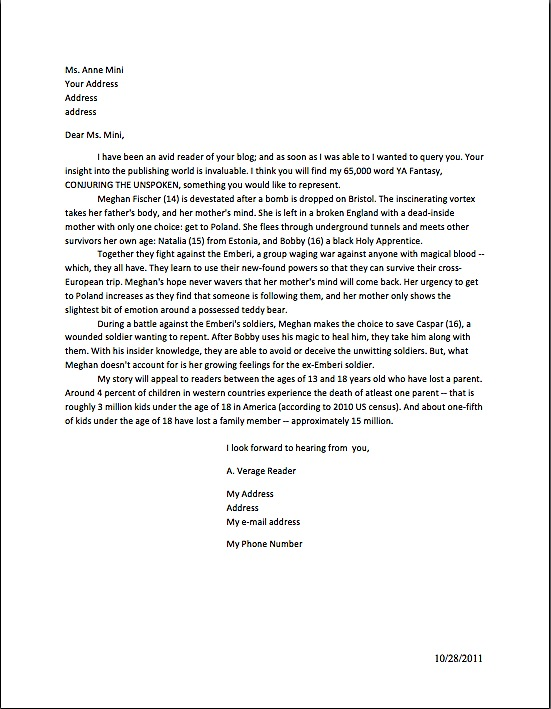
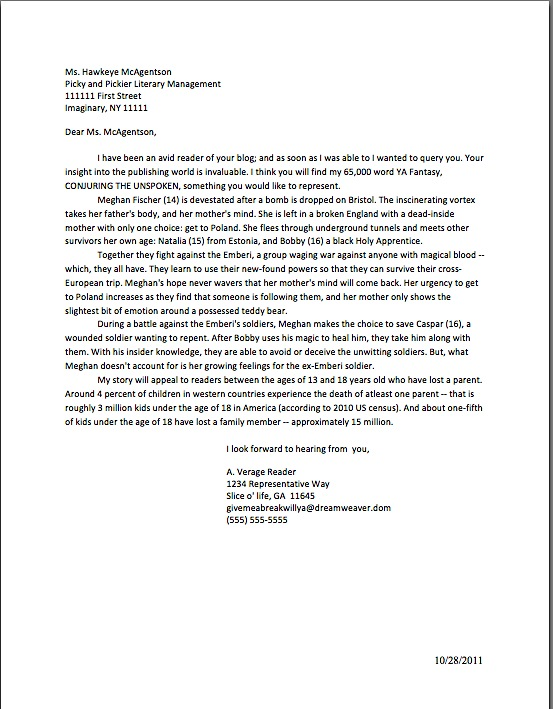
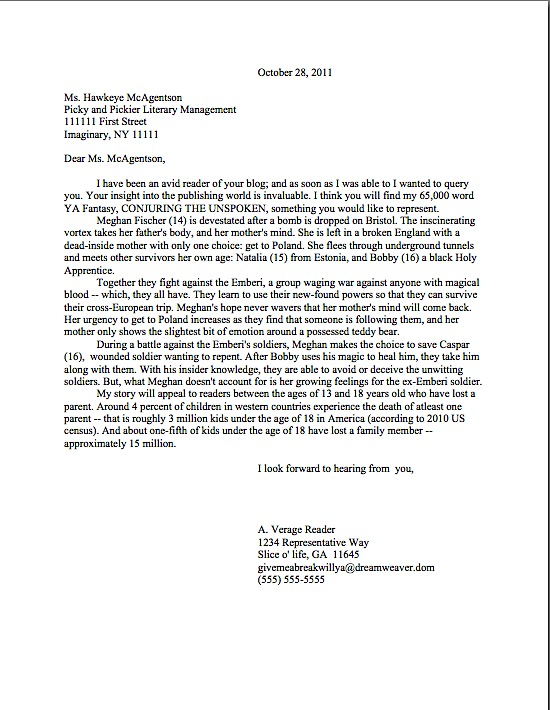
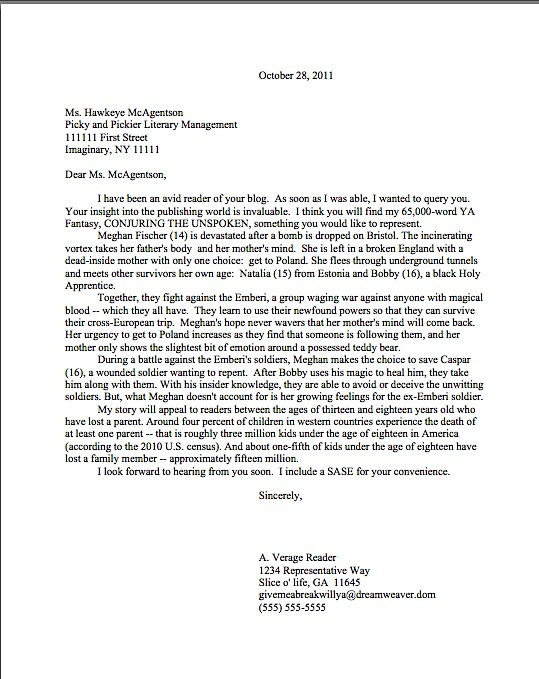
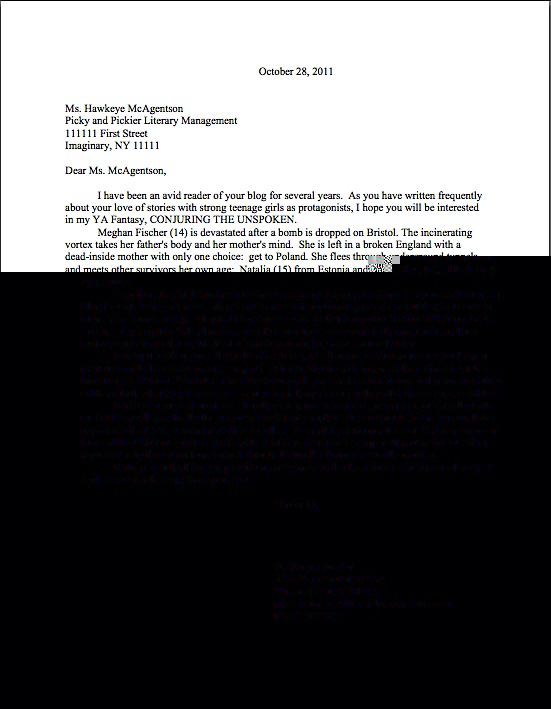
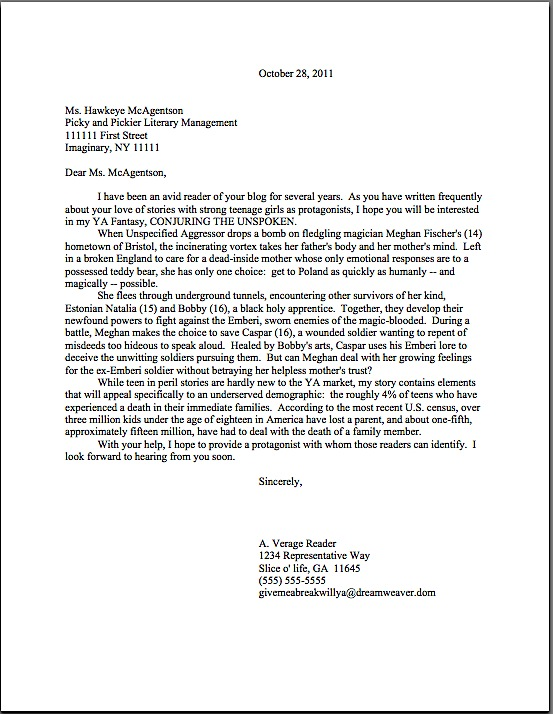

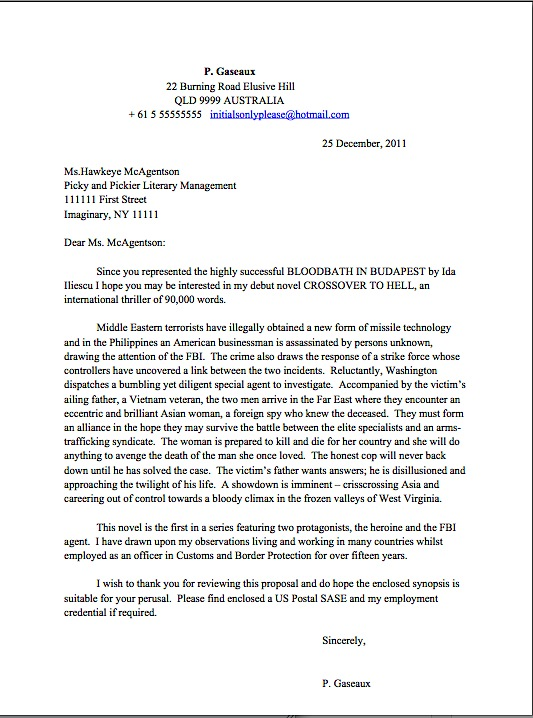
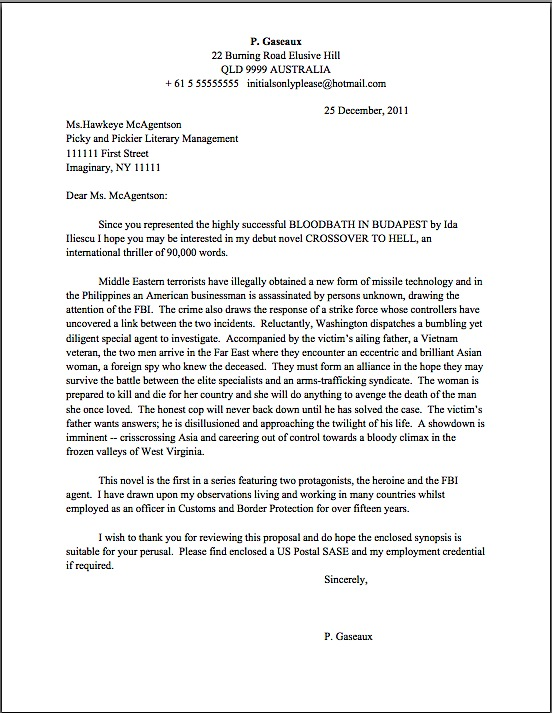
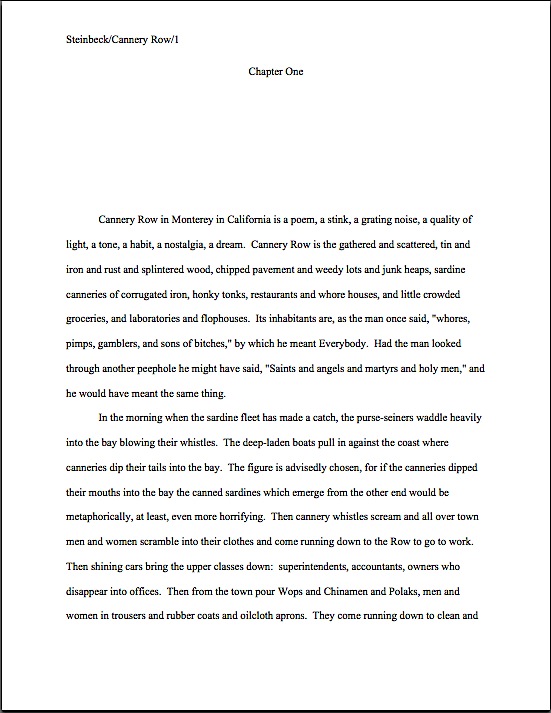
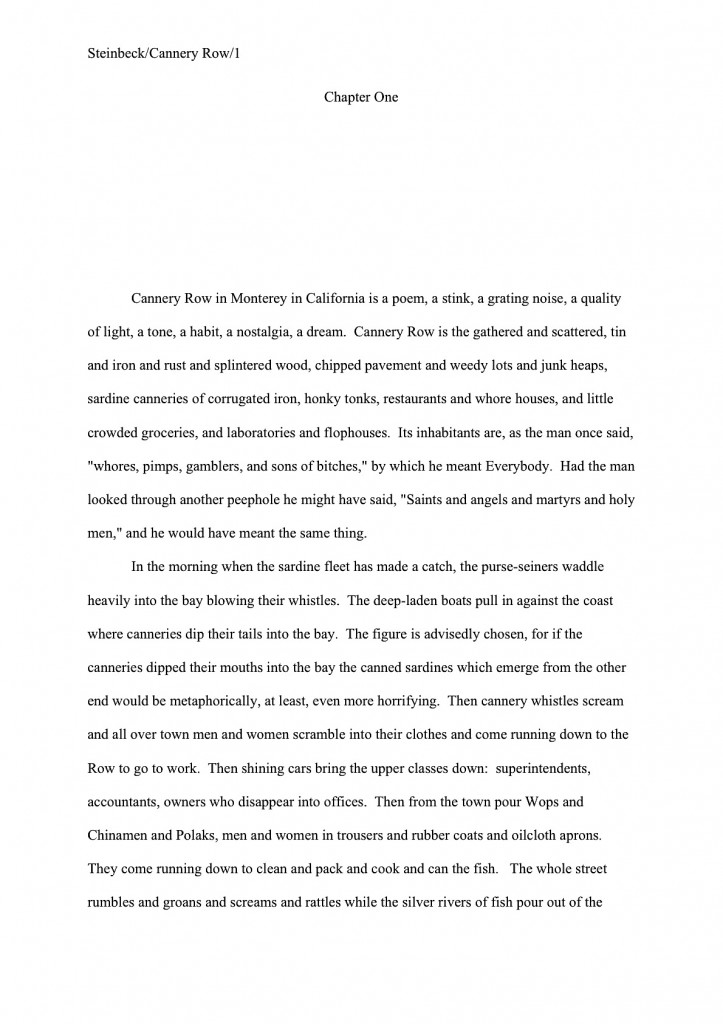
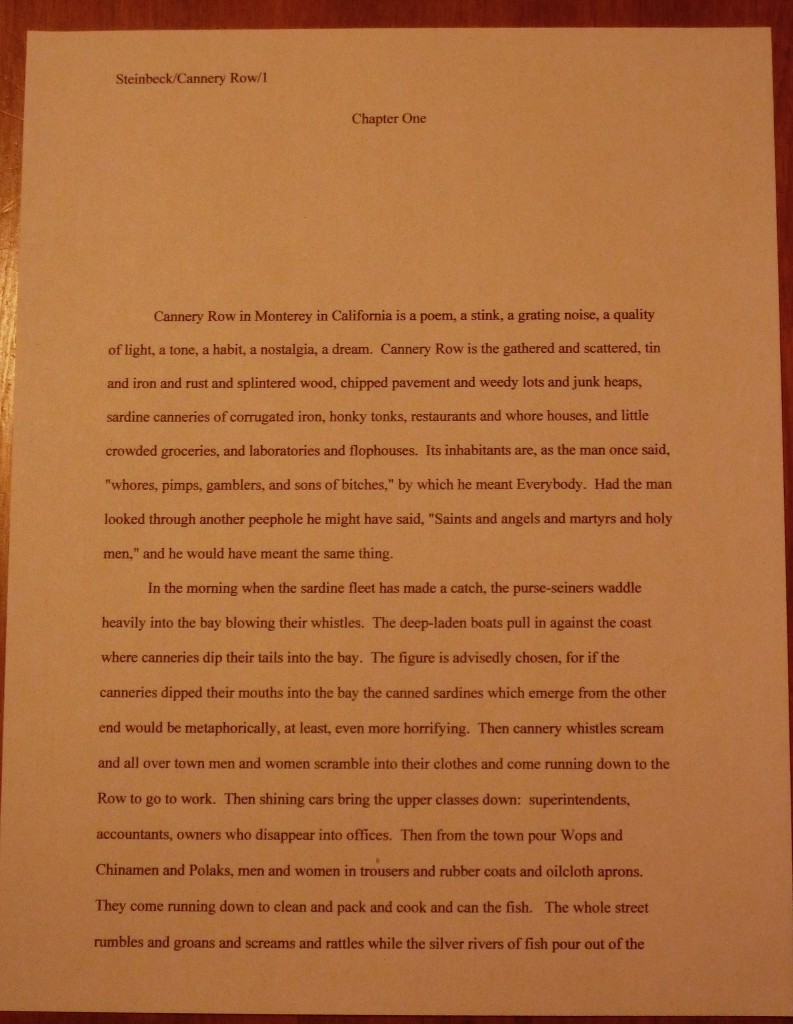
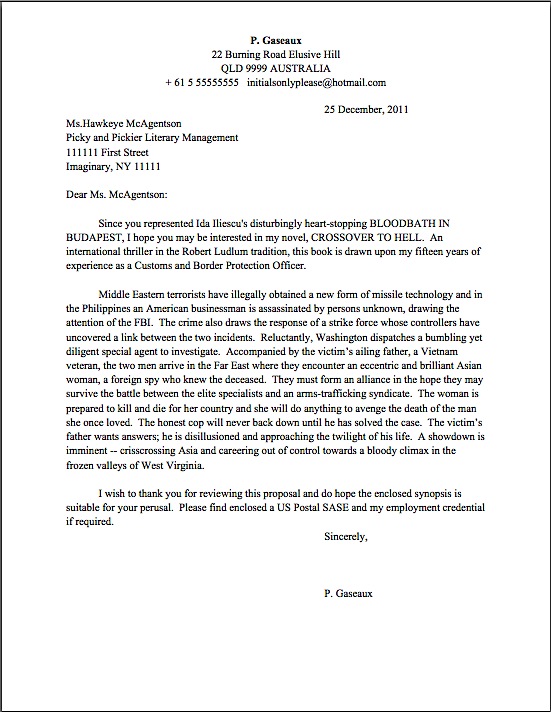
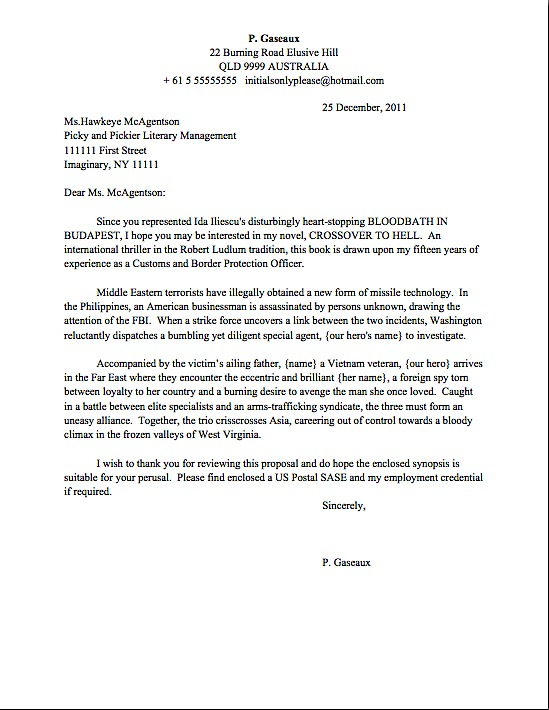
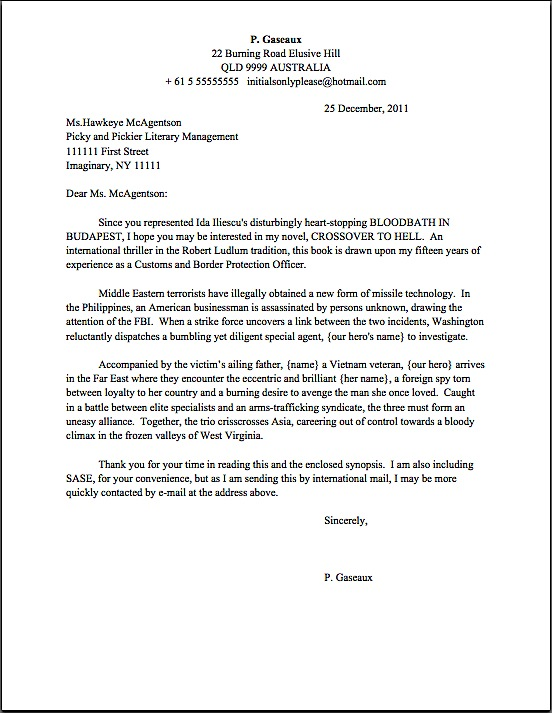

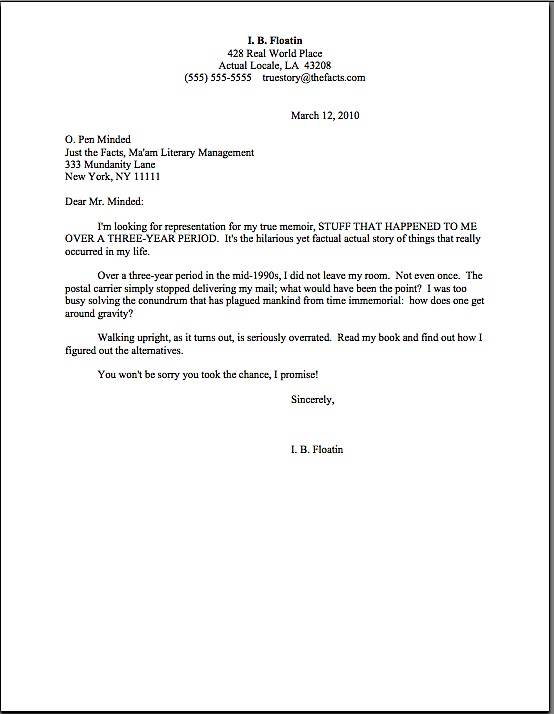
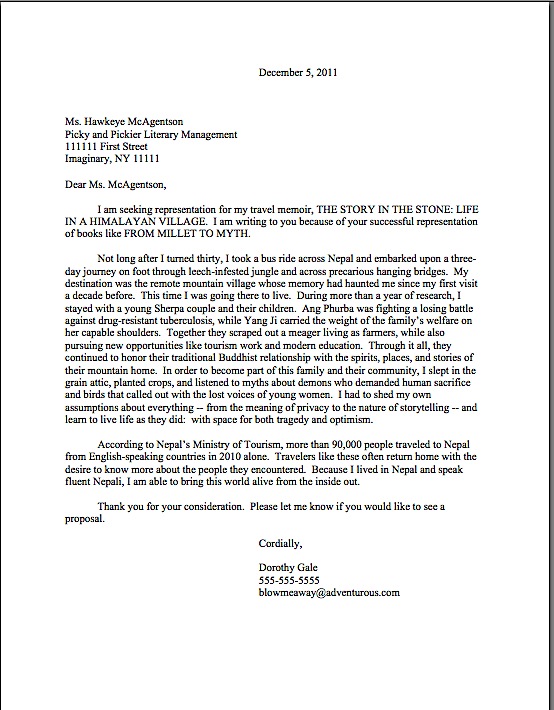
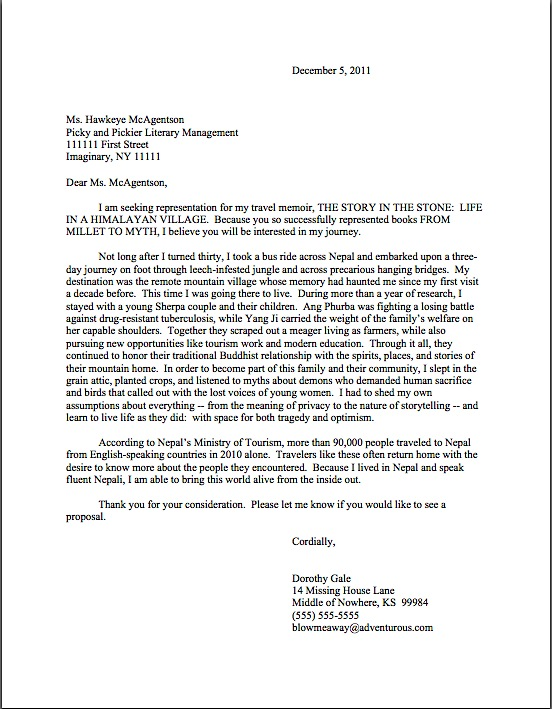
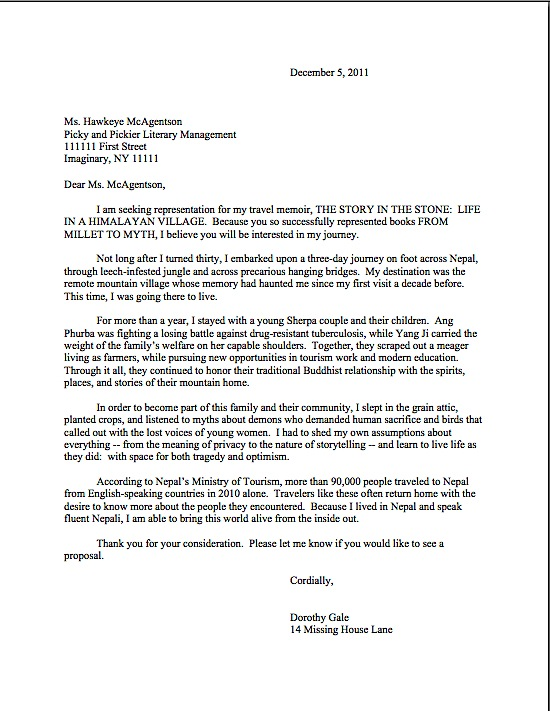
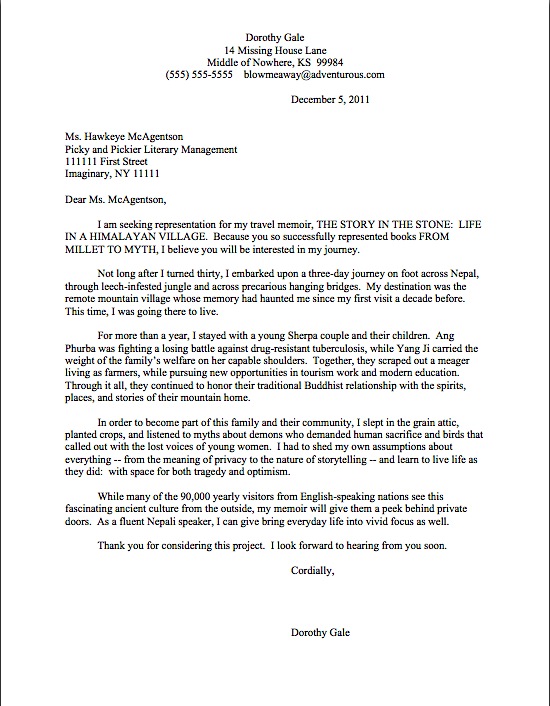
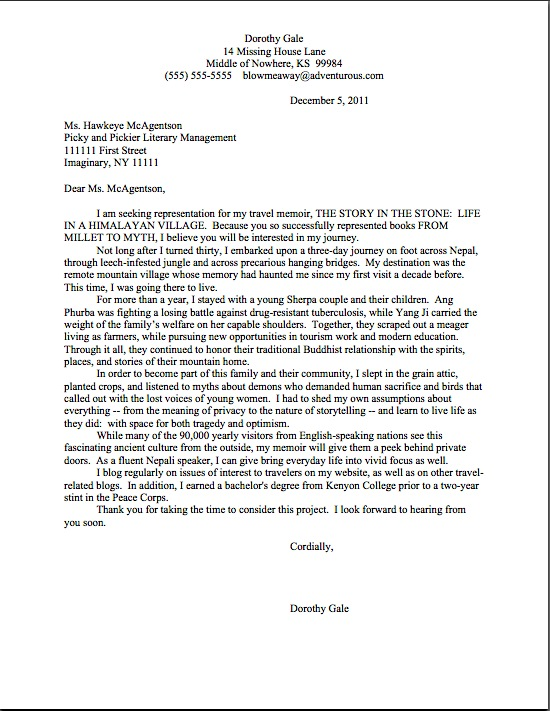






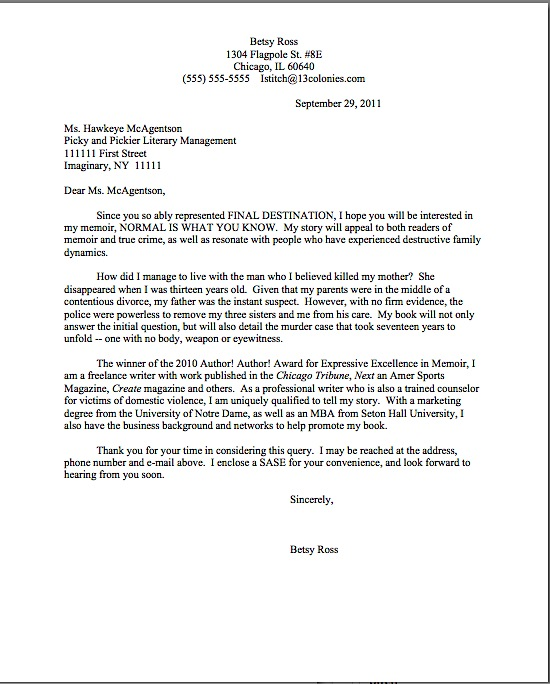
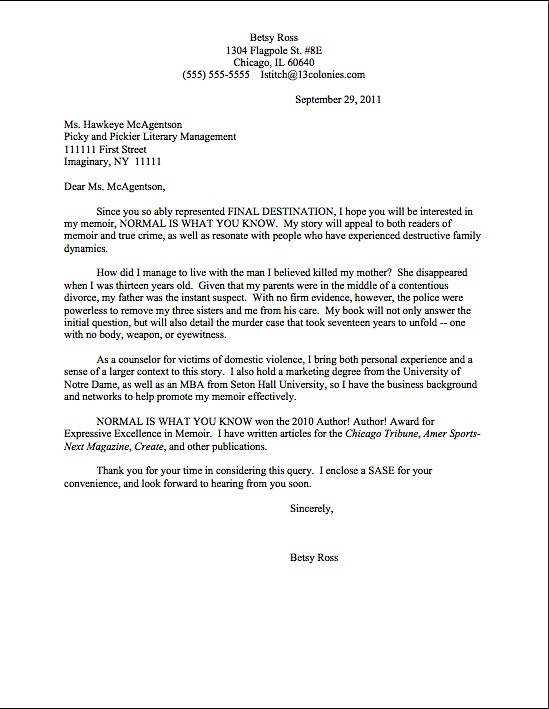
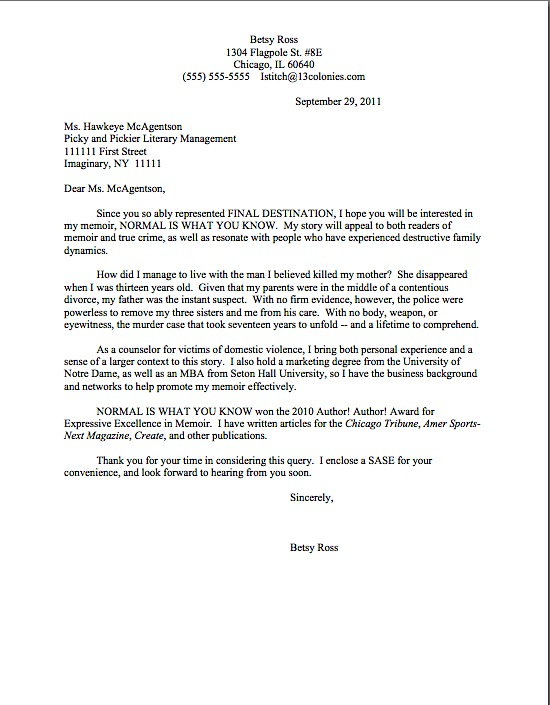
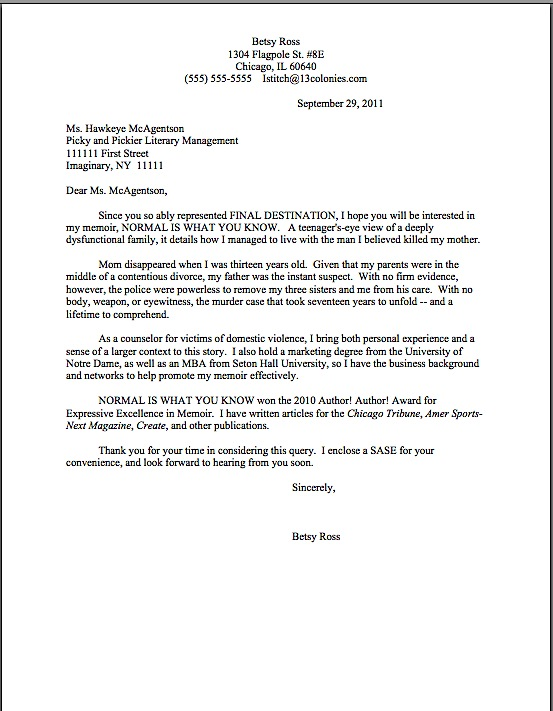
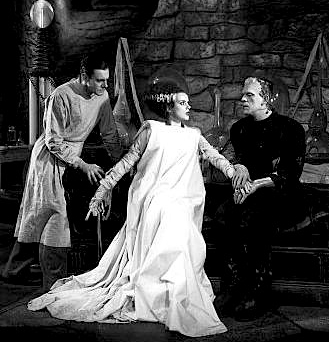

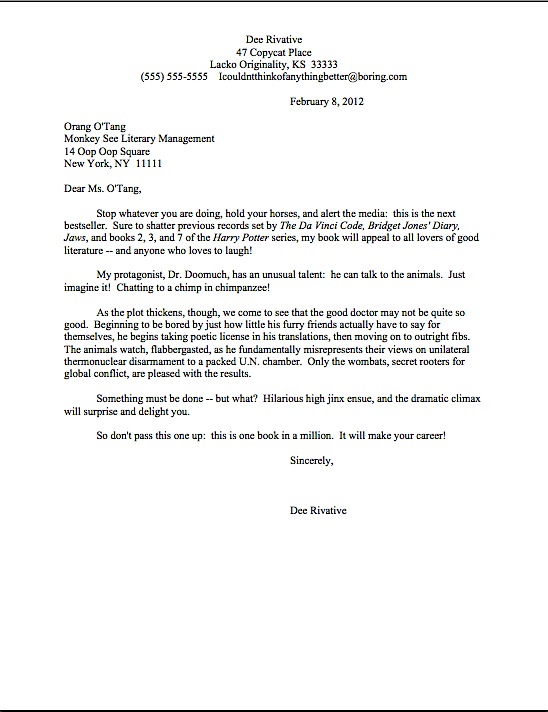

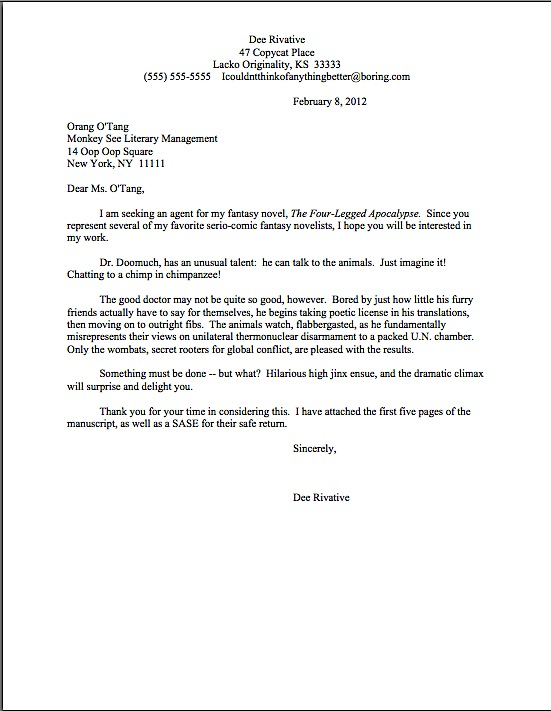
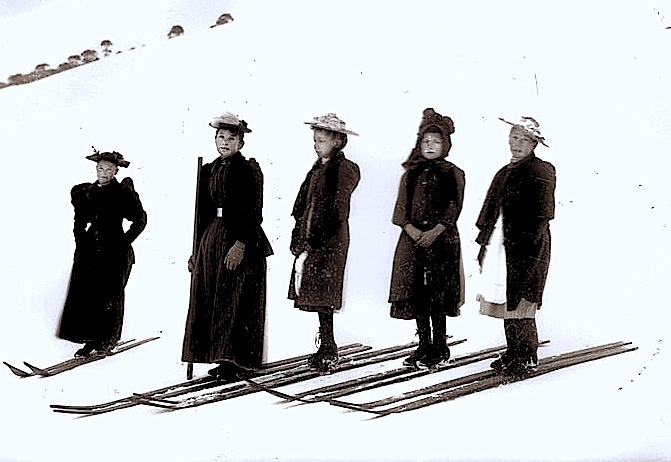
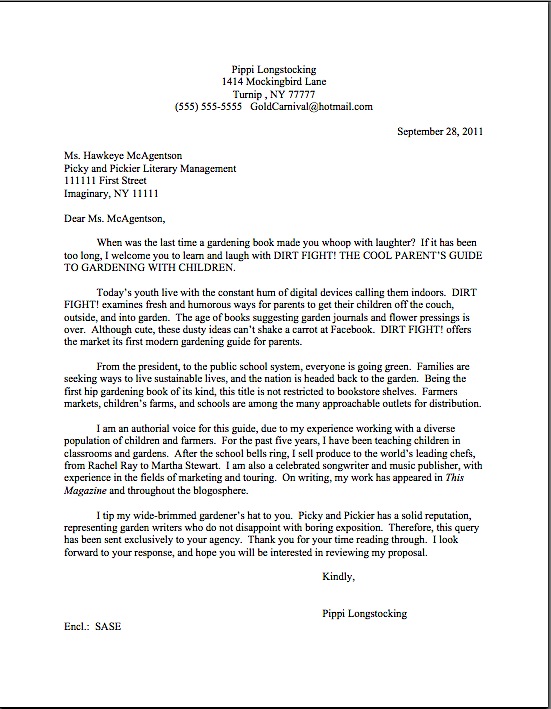
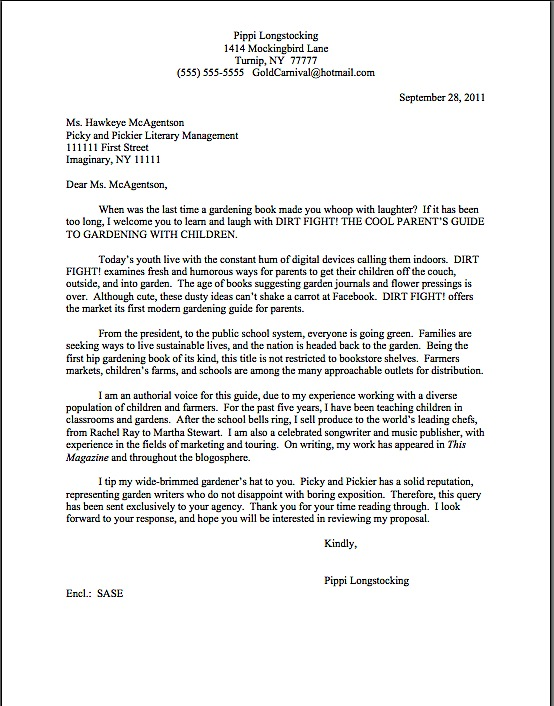
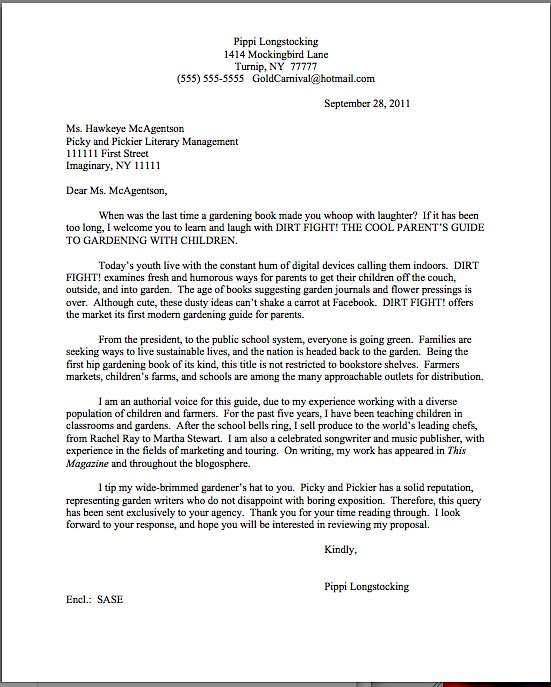
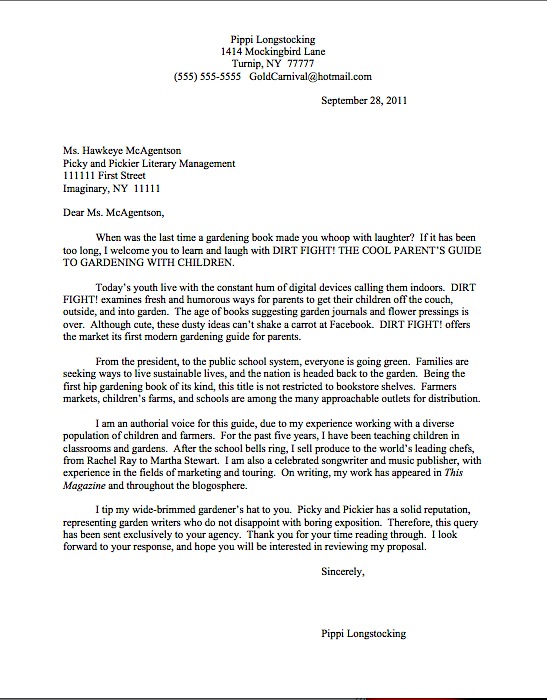
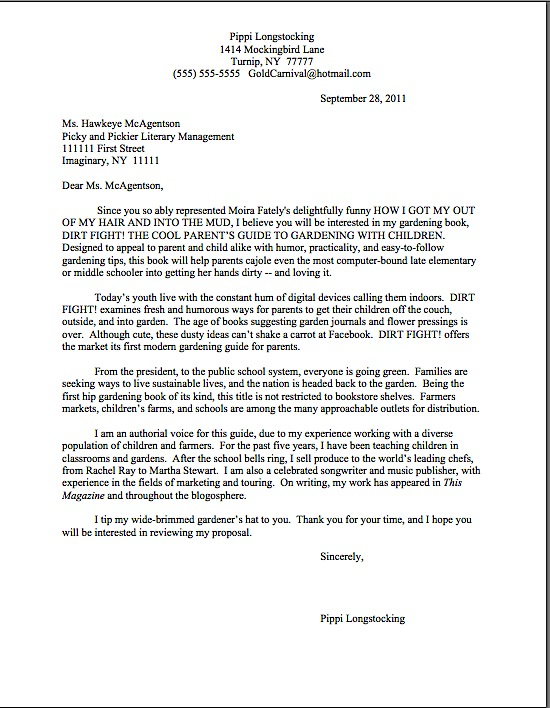
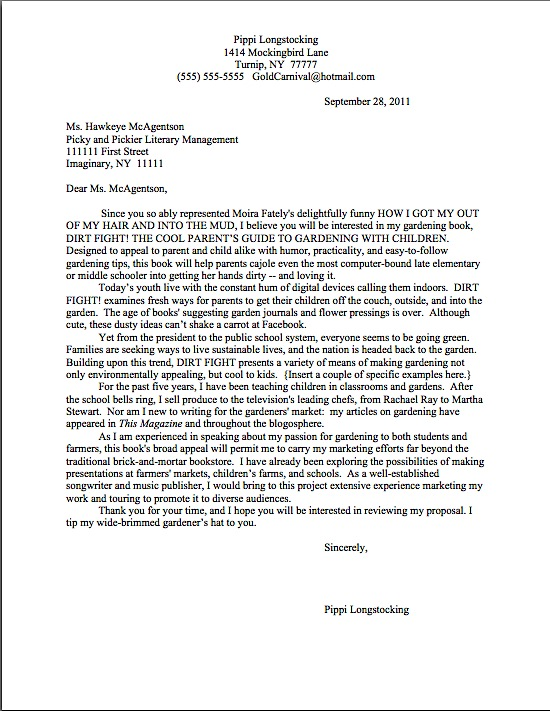

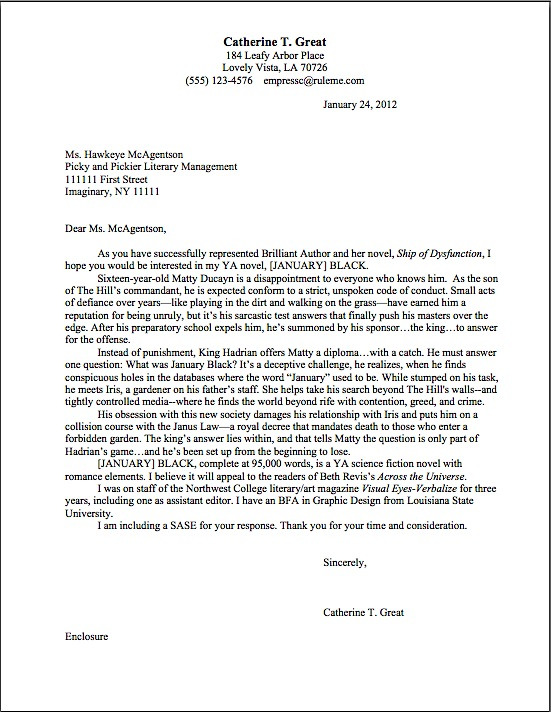
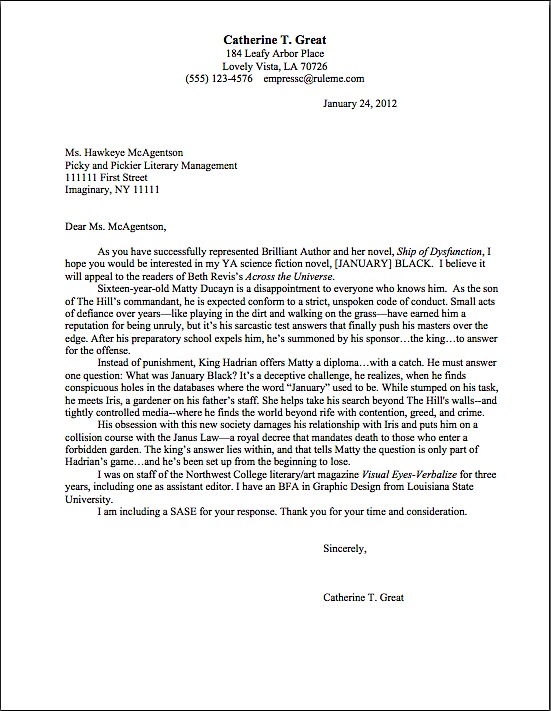
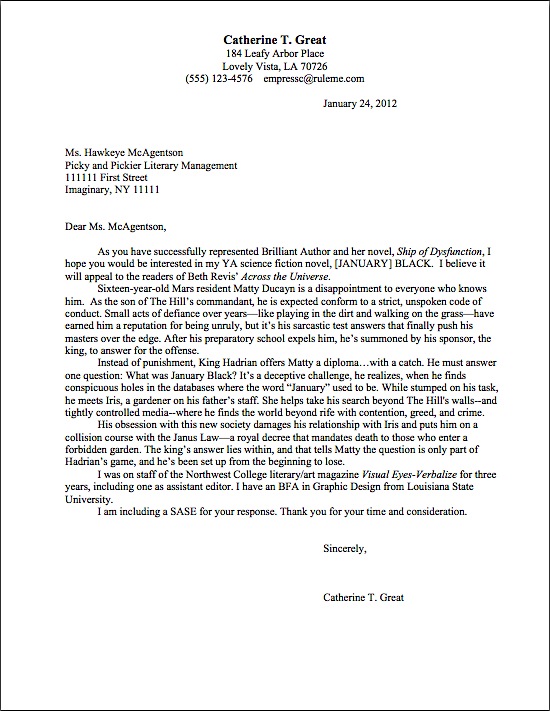
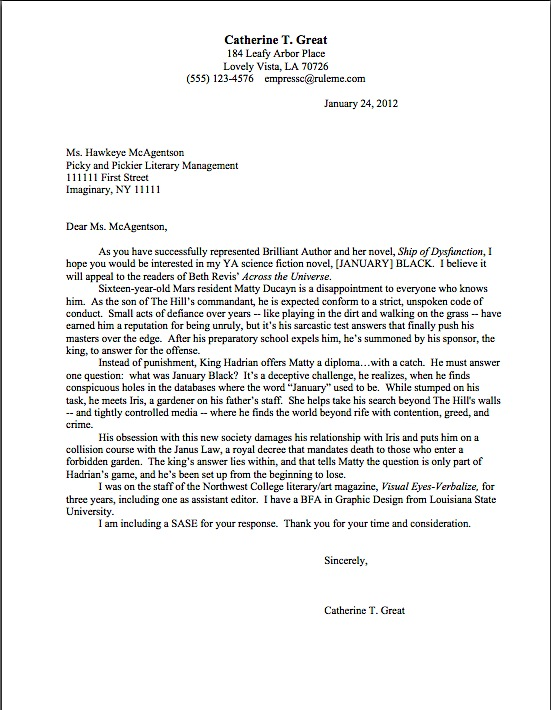
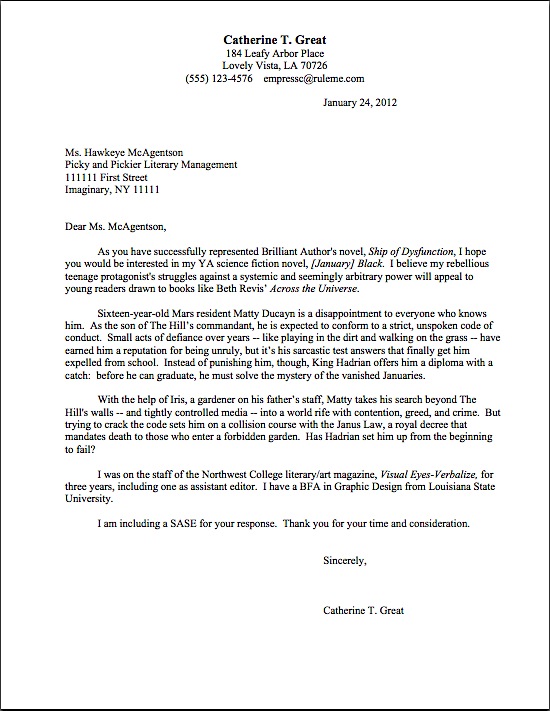

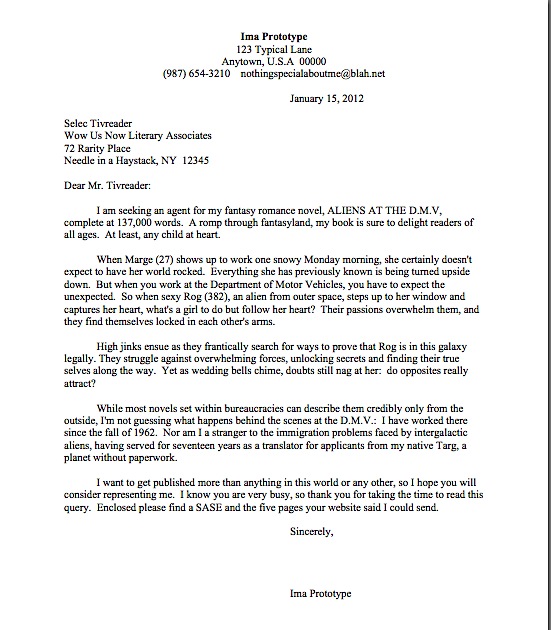
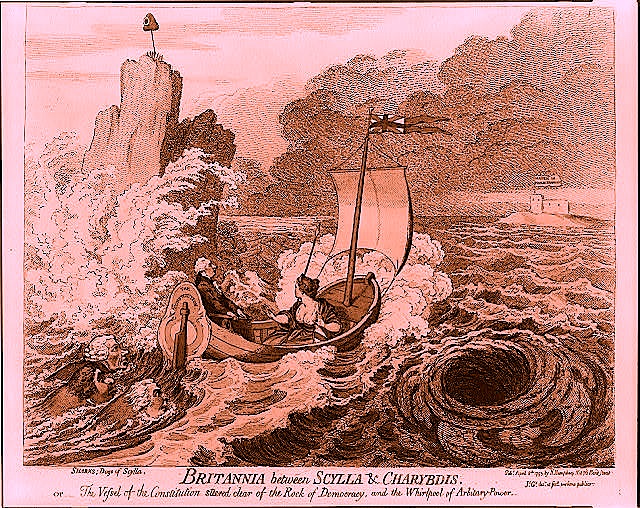
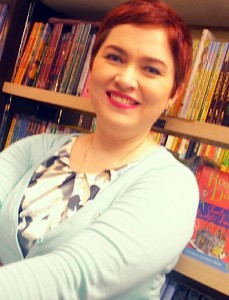

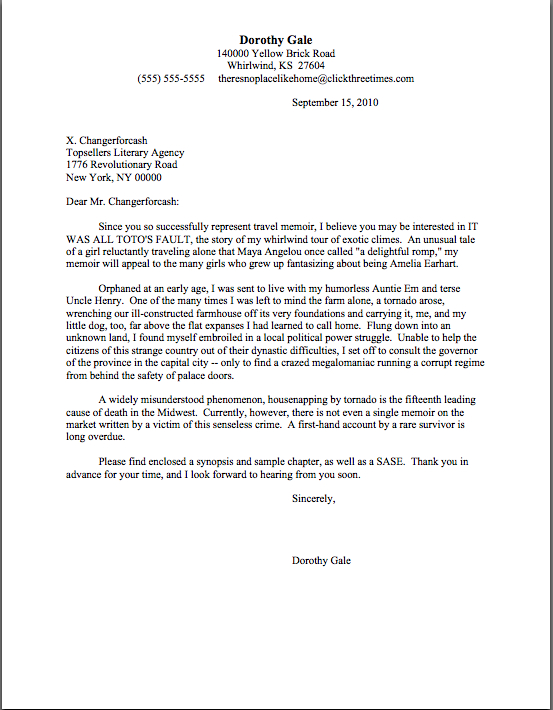
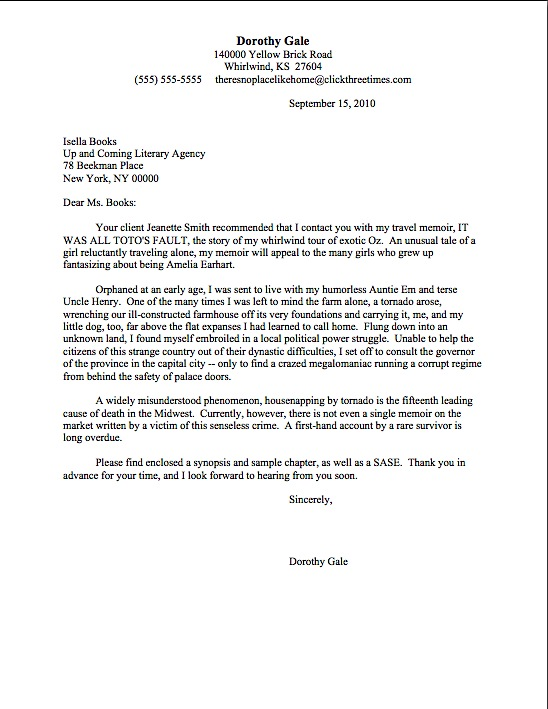
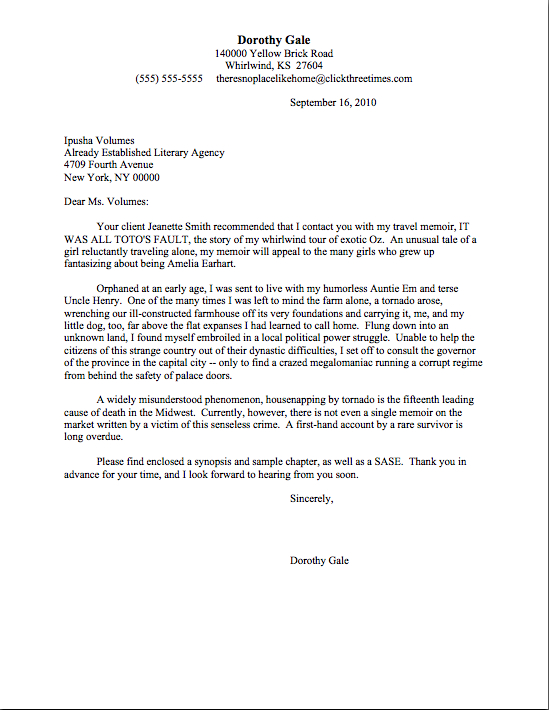
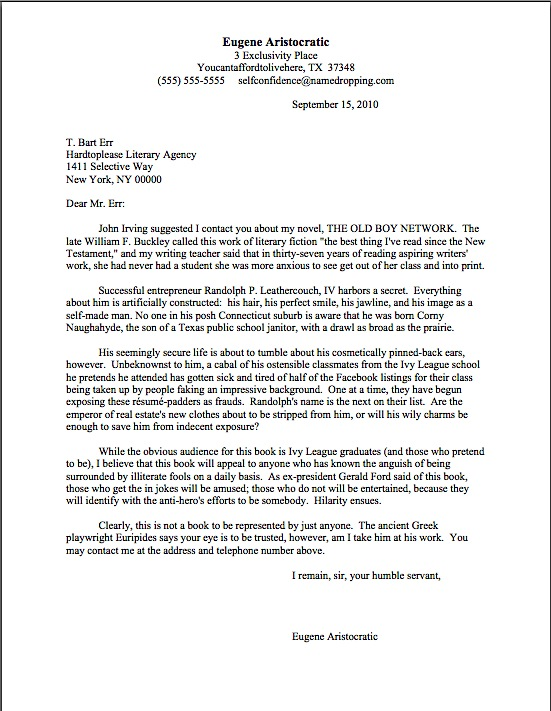
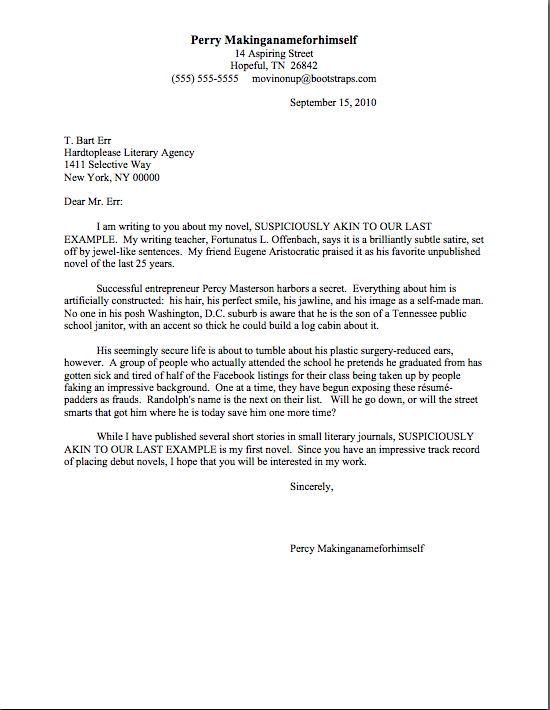



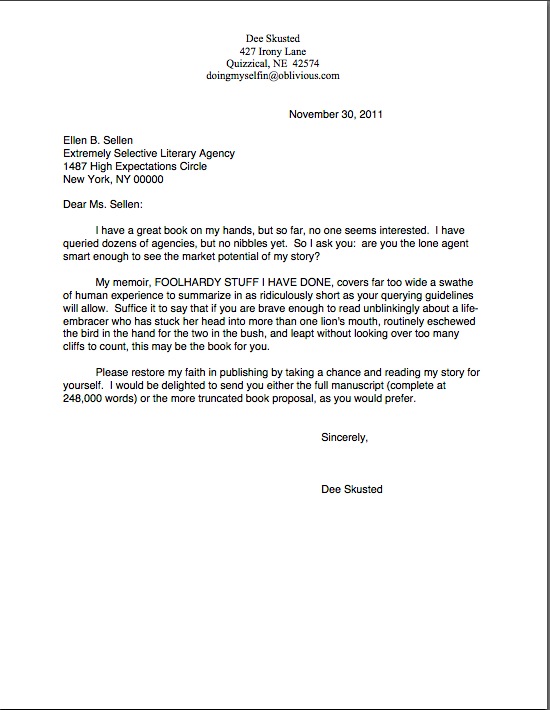
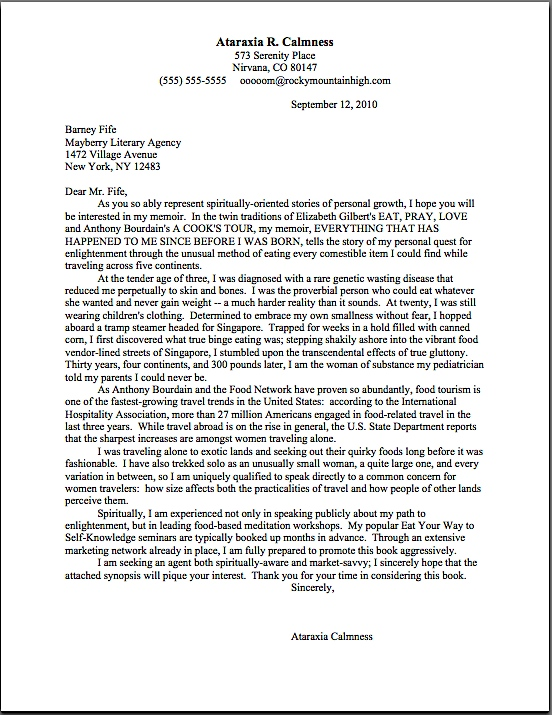
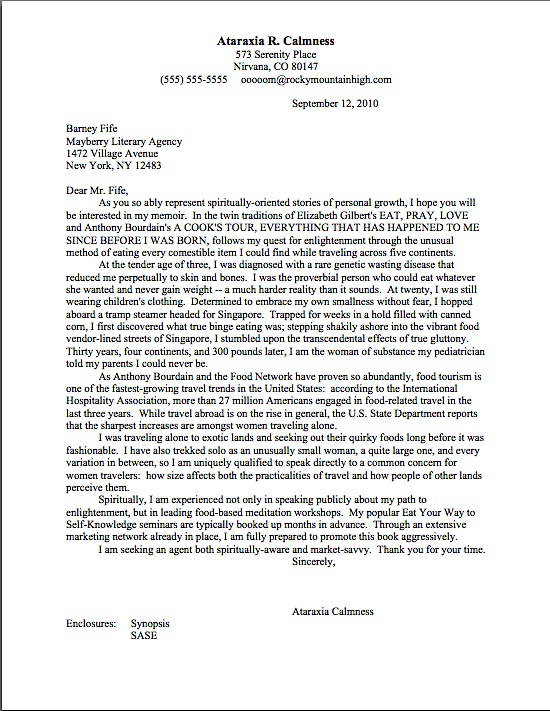
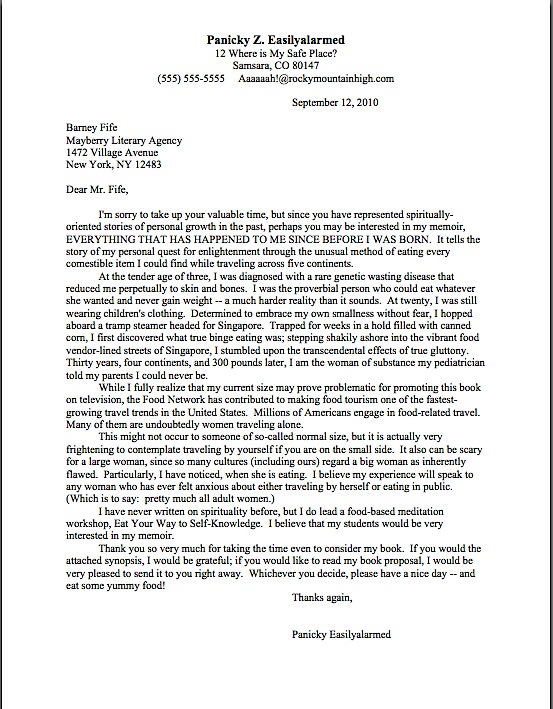




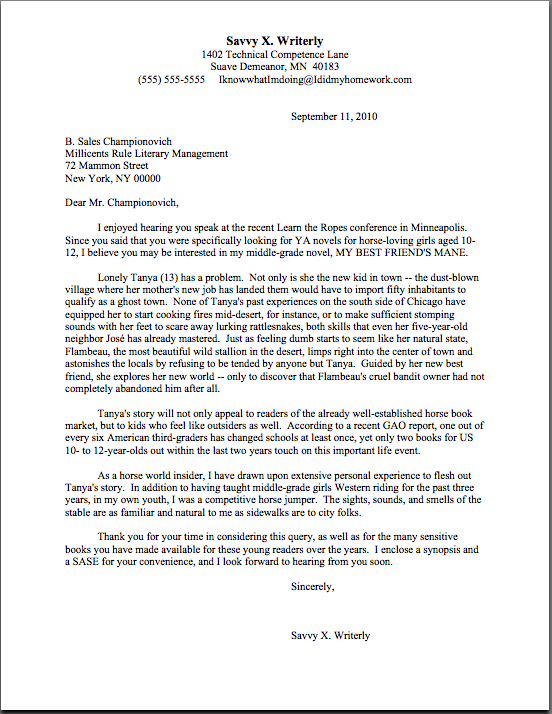
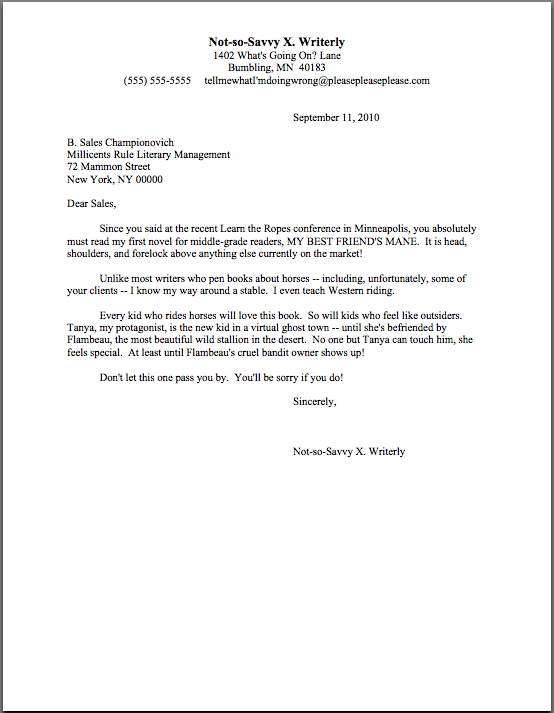
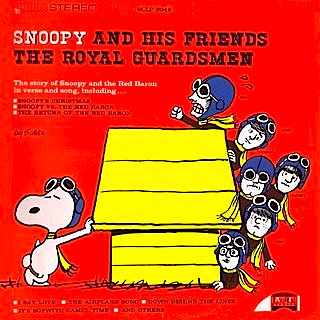


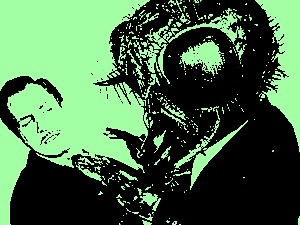
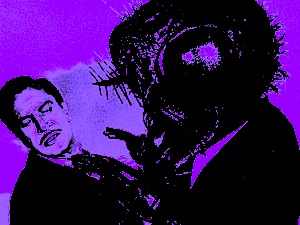
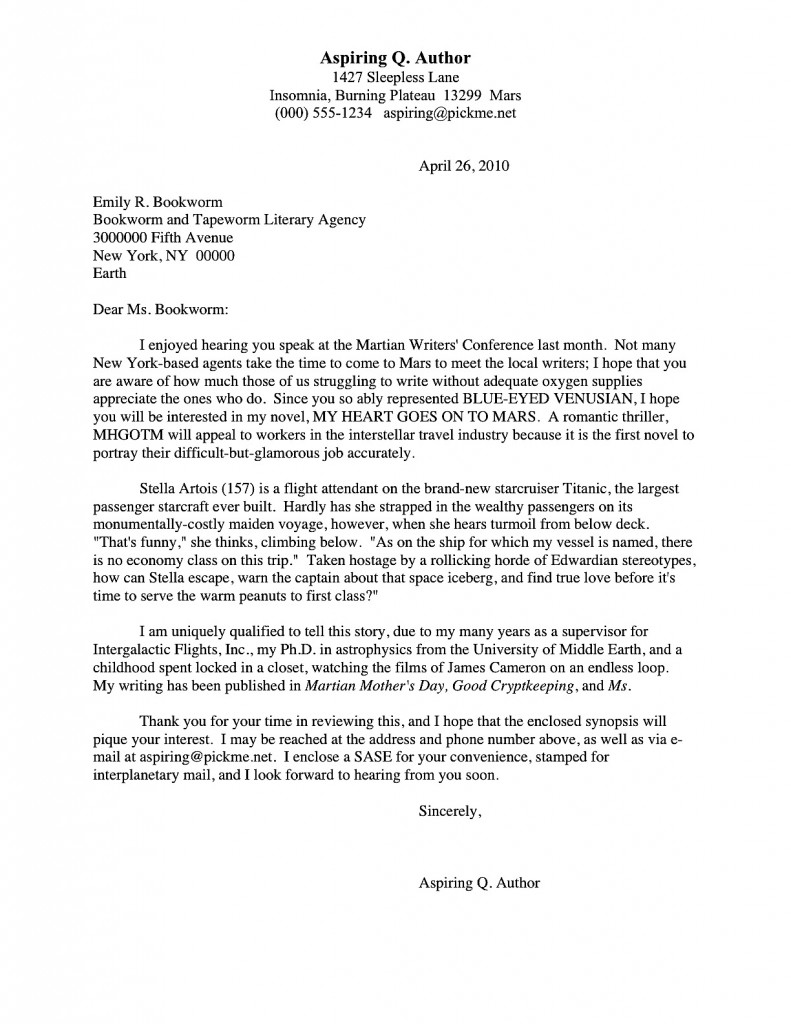
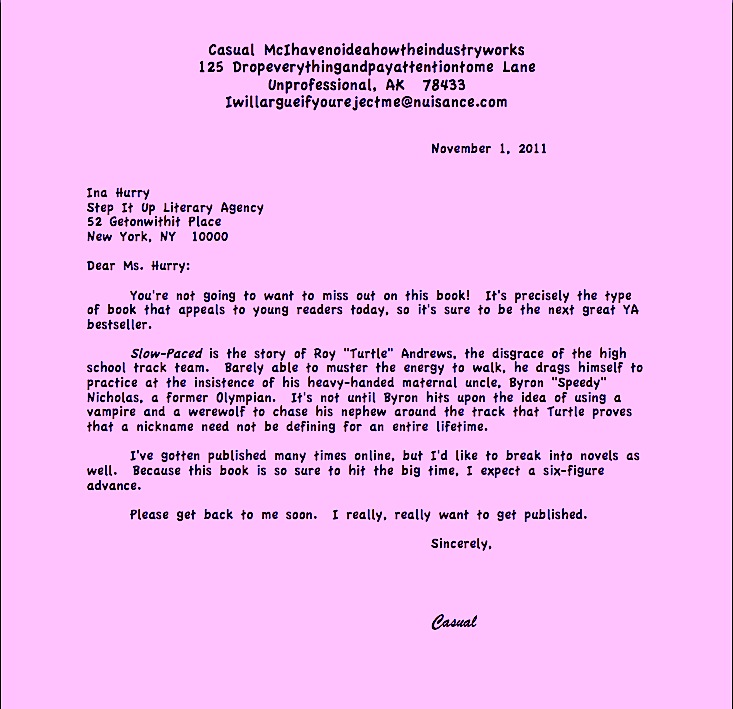

 Realistically, every English sentence a writer places under an agent or editor’s nose is a writing sample: the query, the synopsis, the bio, the book proposal. Every paragraph is yet another opportunity to show these people that you can write.
Realistically, every English sentence a writer places under an agent or editor’s nose is a writing sample: the query, the synopsis, the bio, the book proposal. Every paragraph is yet another opportunity to show these people that you can write.
